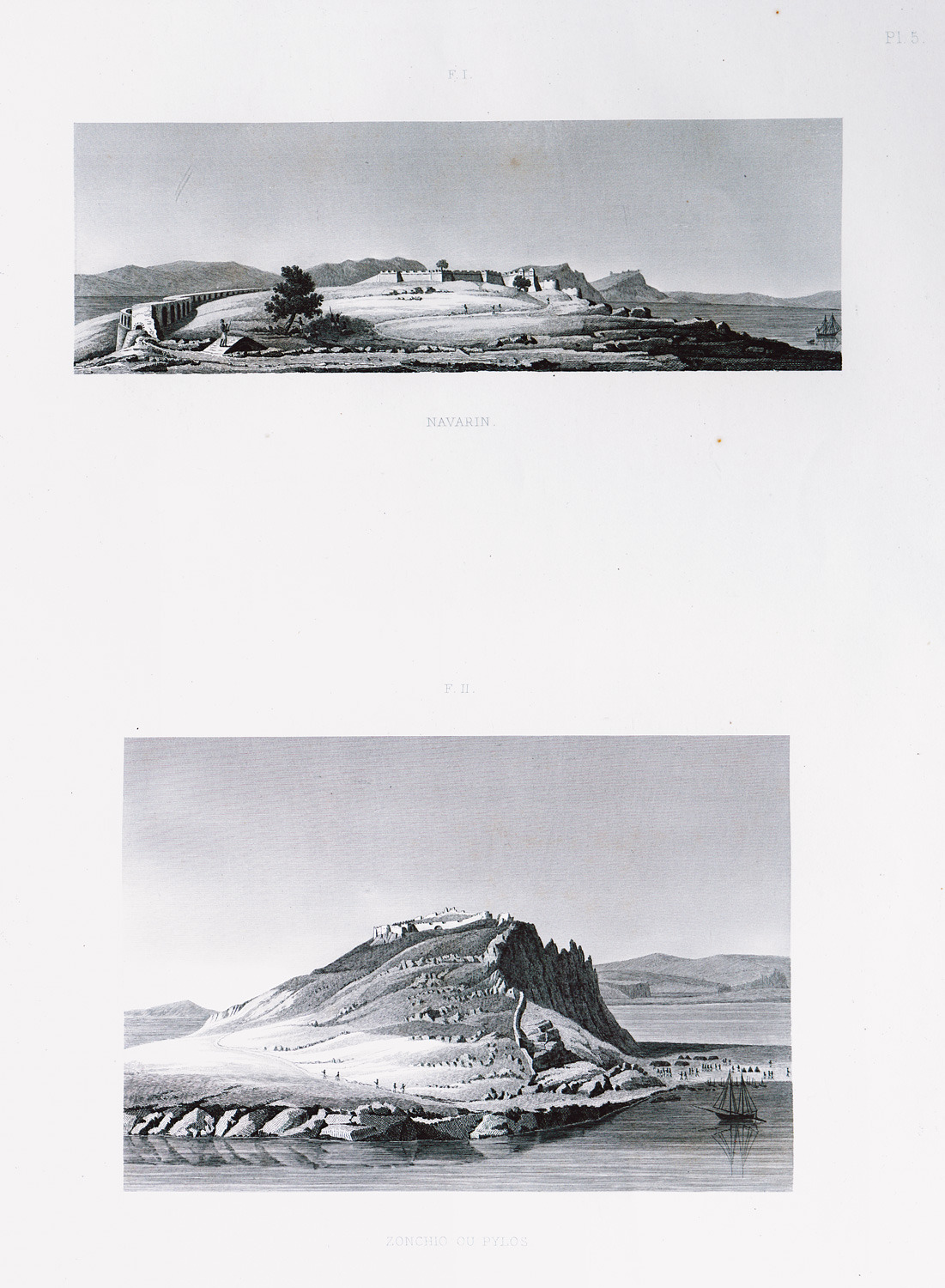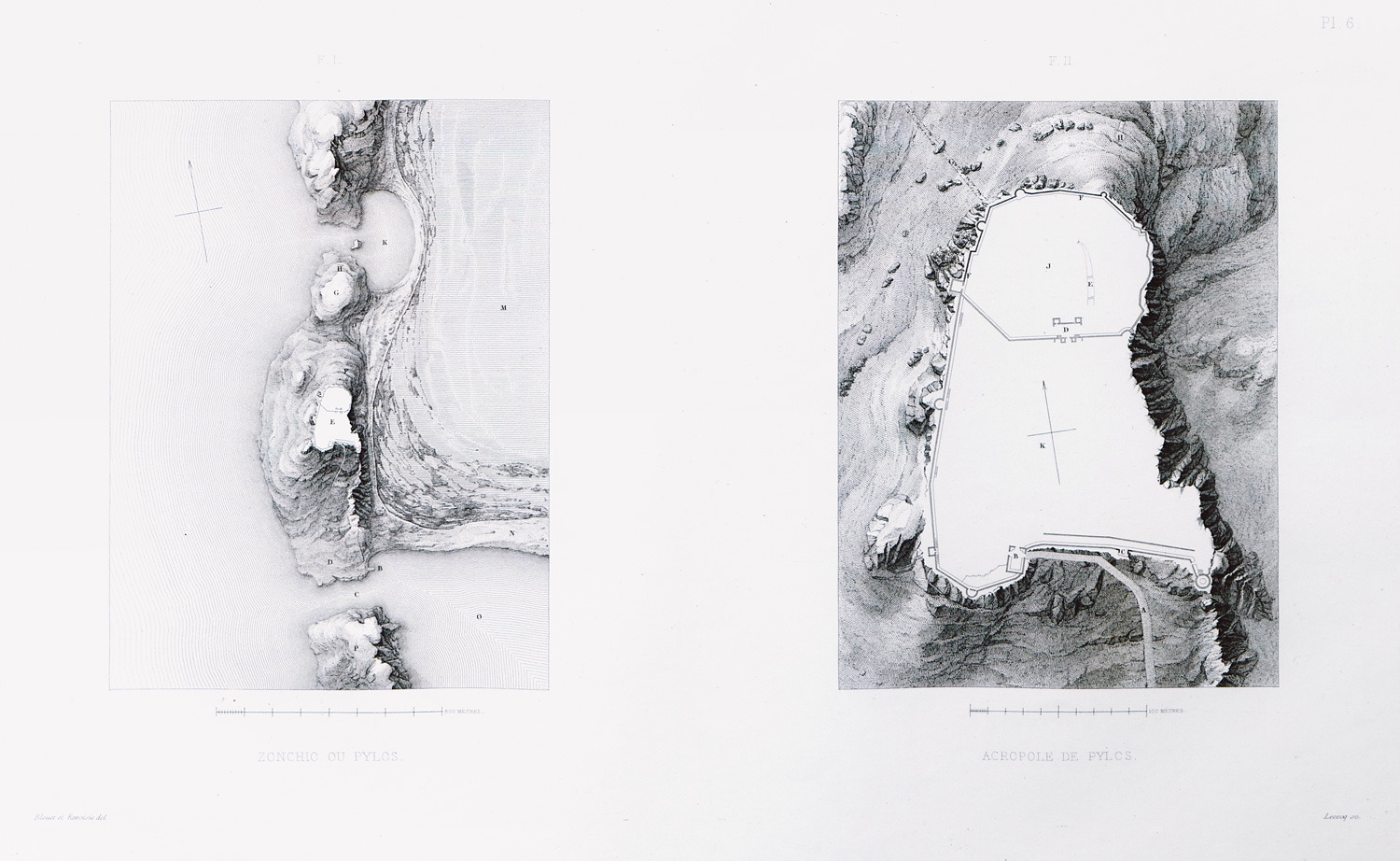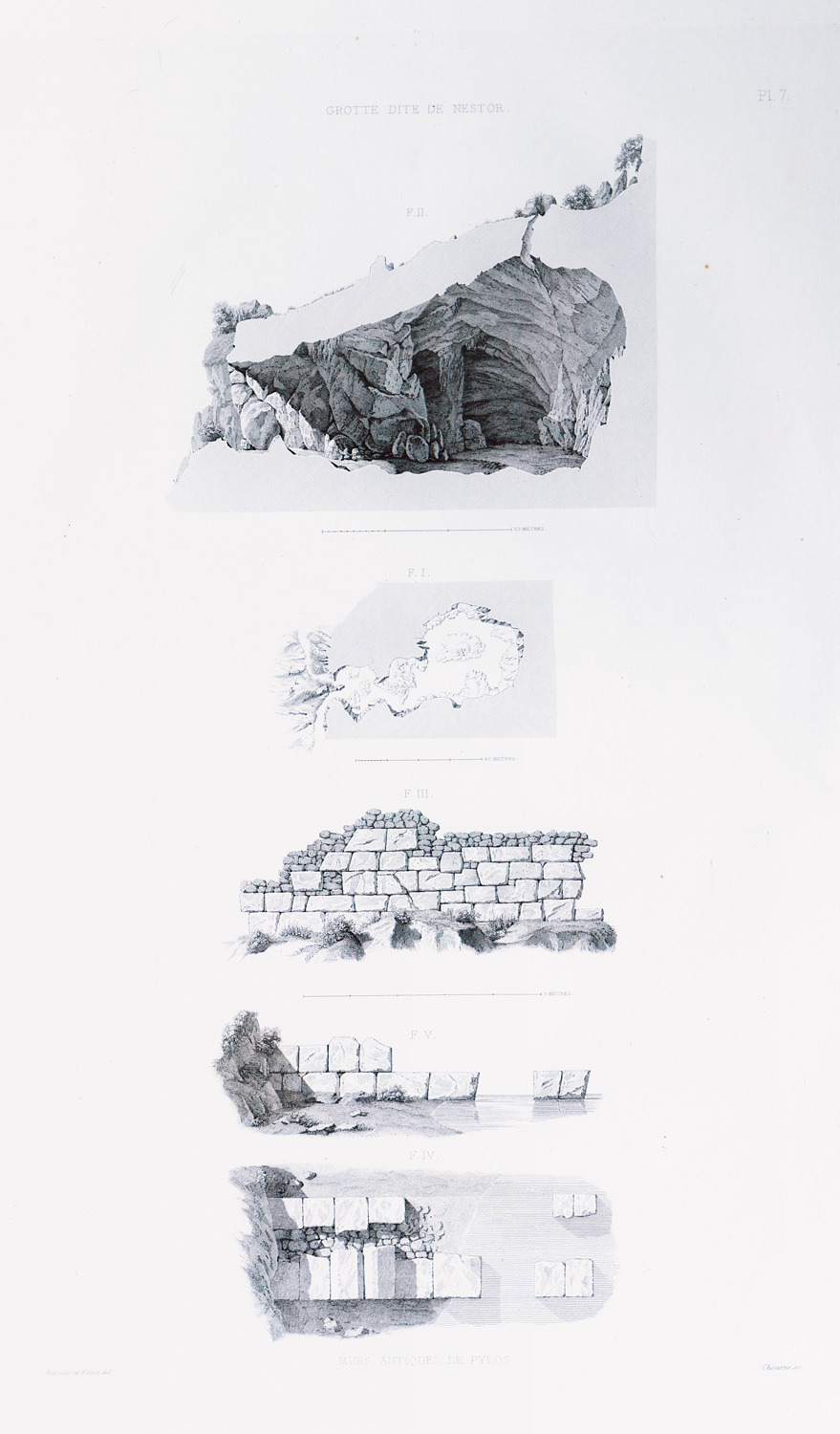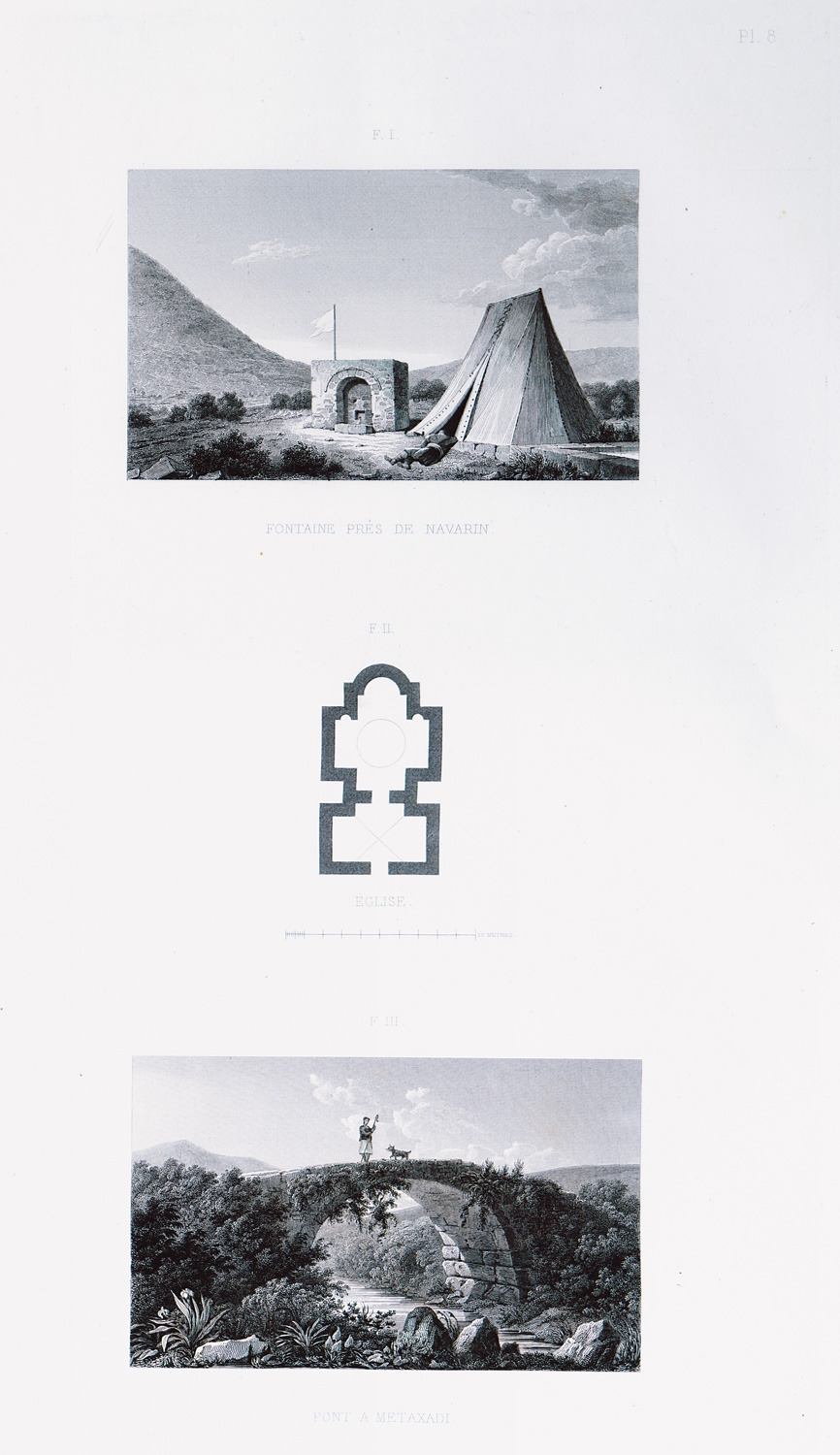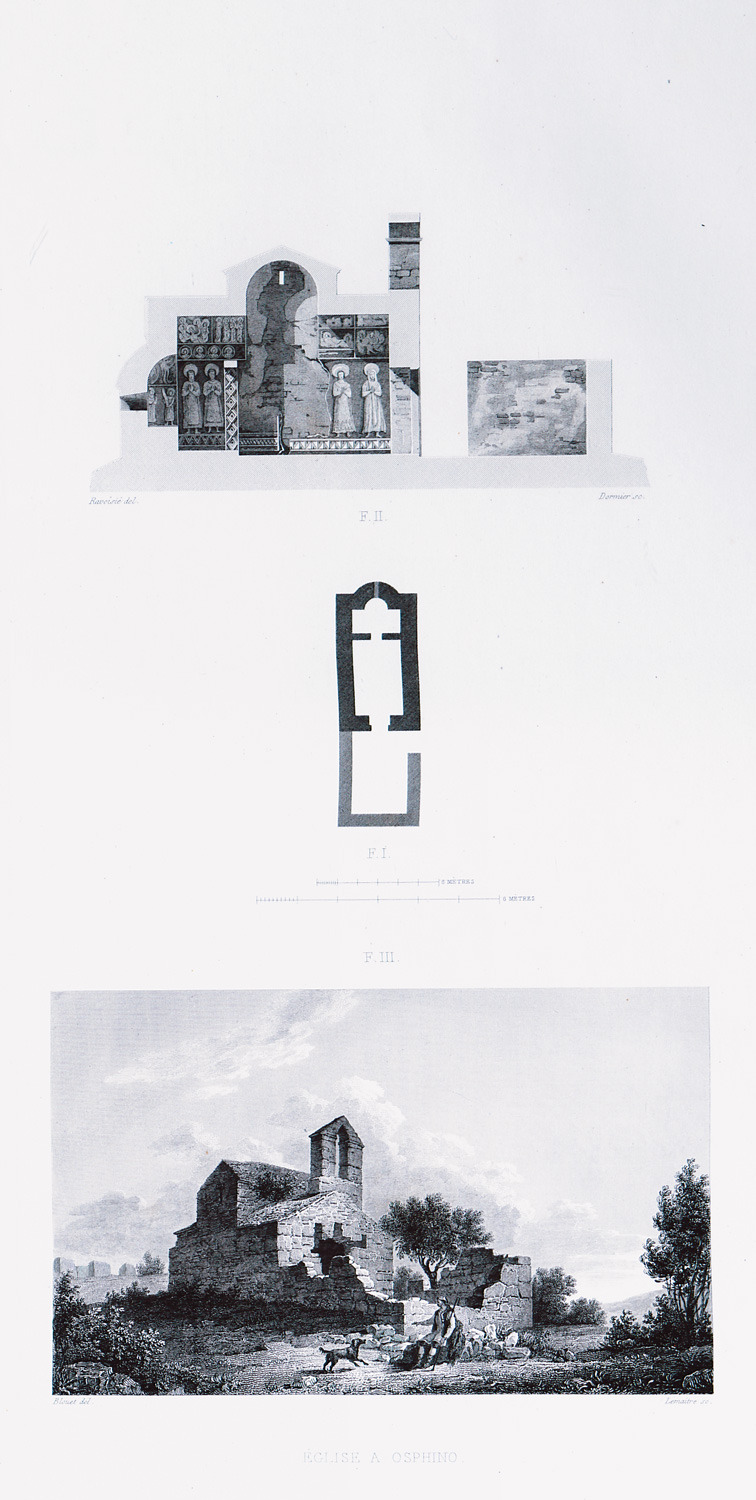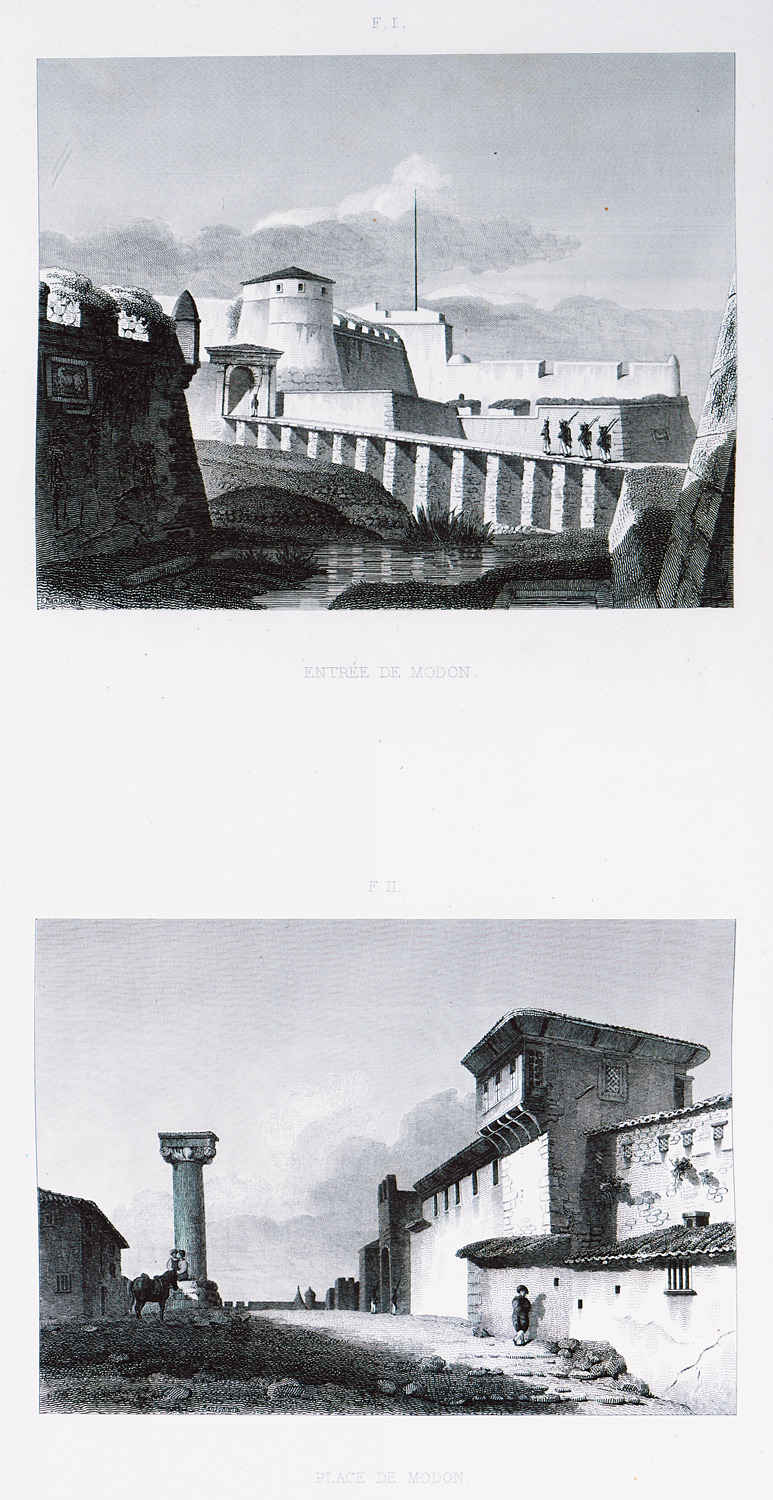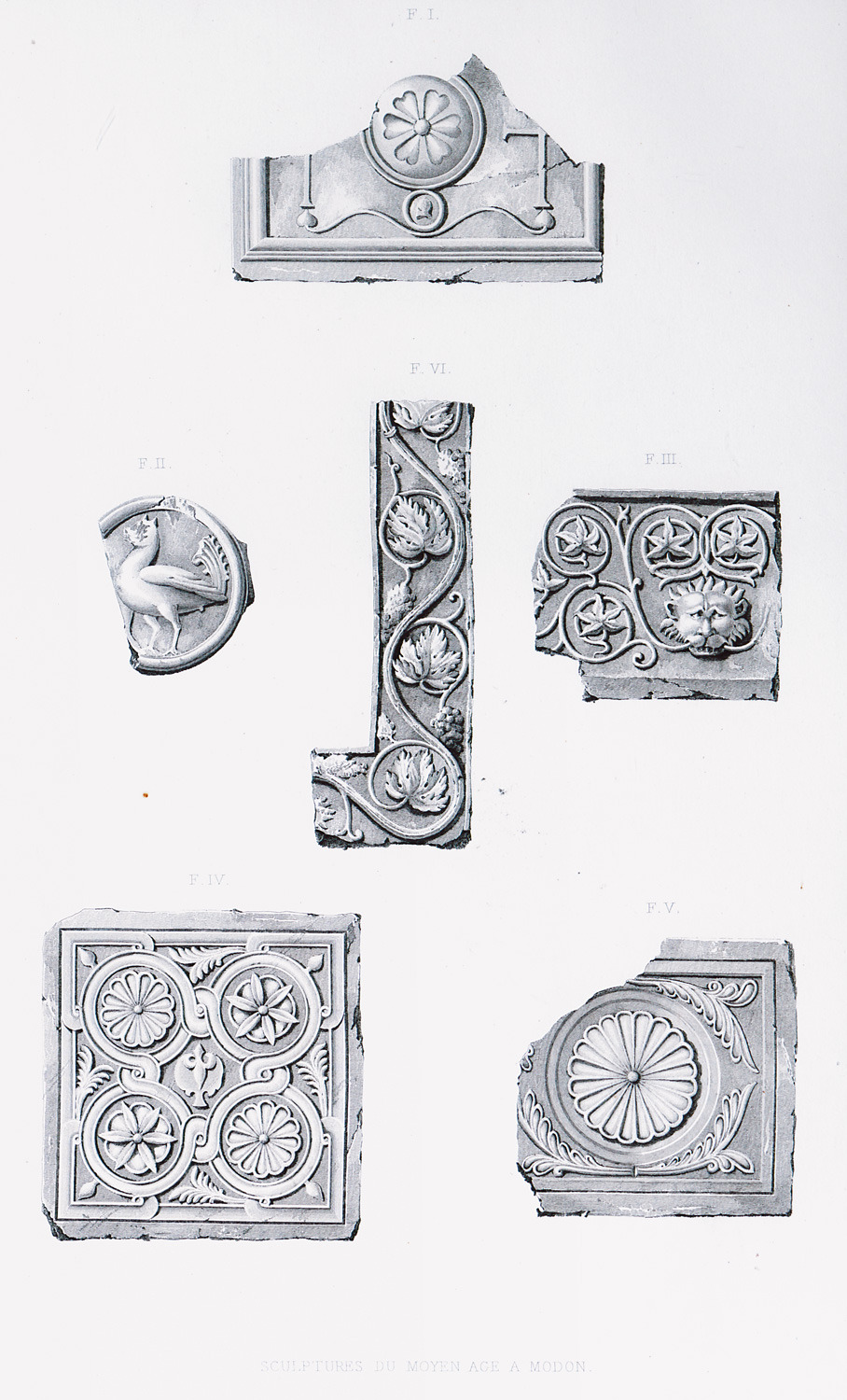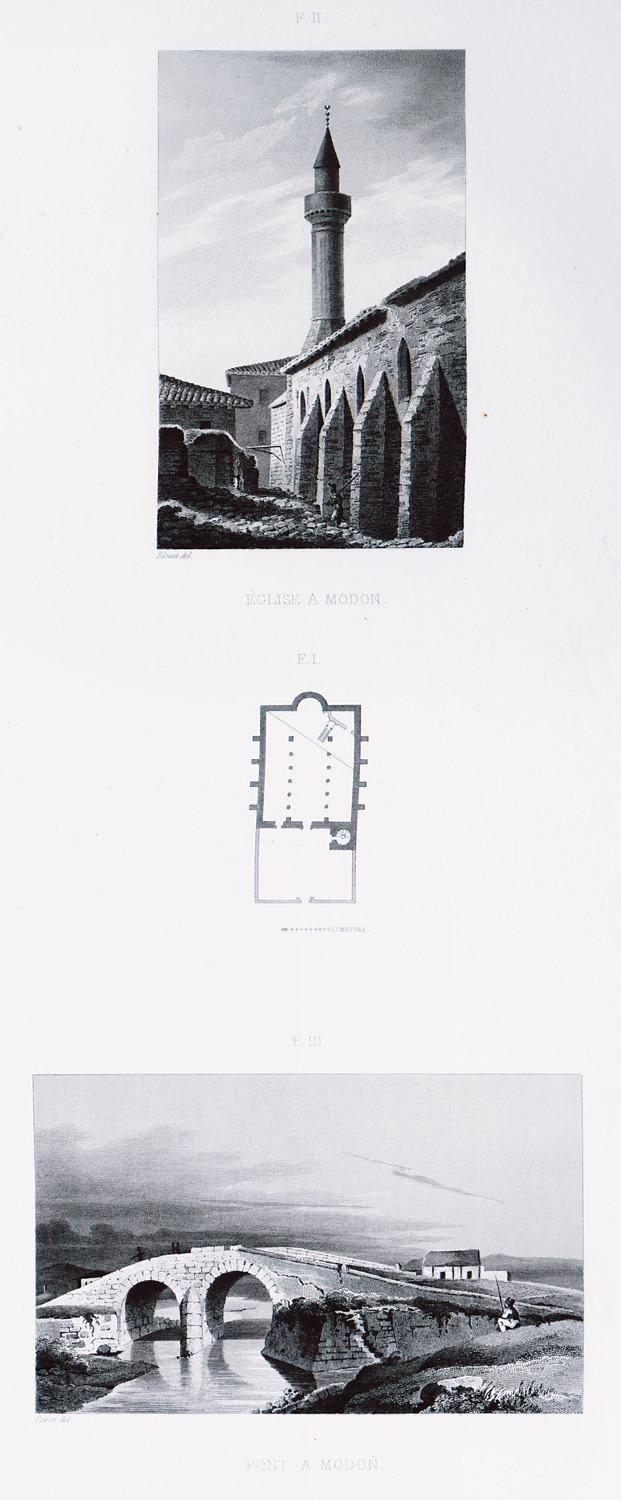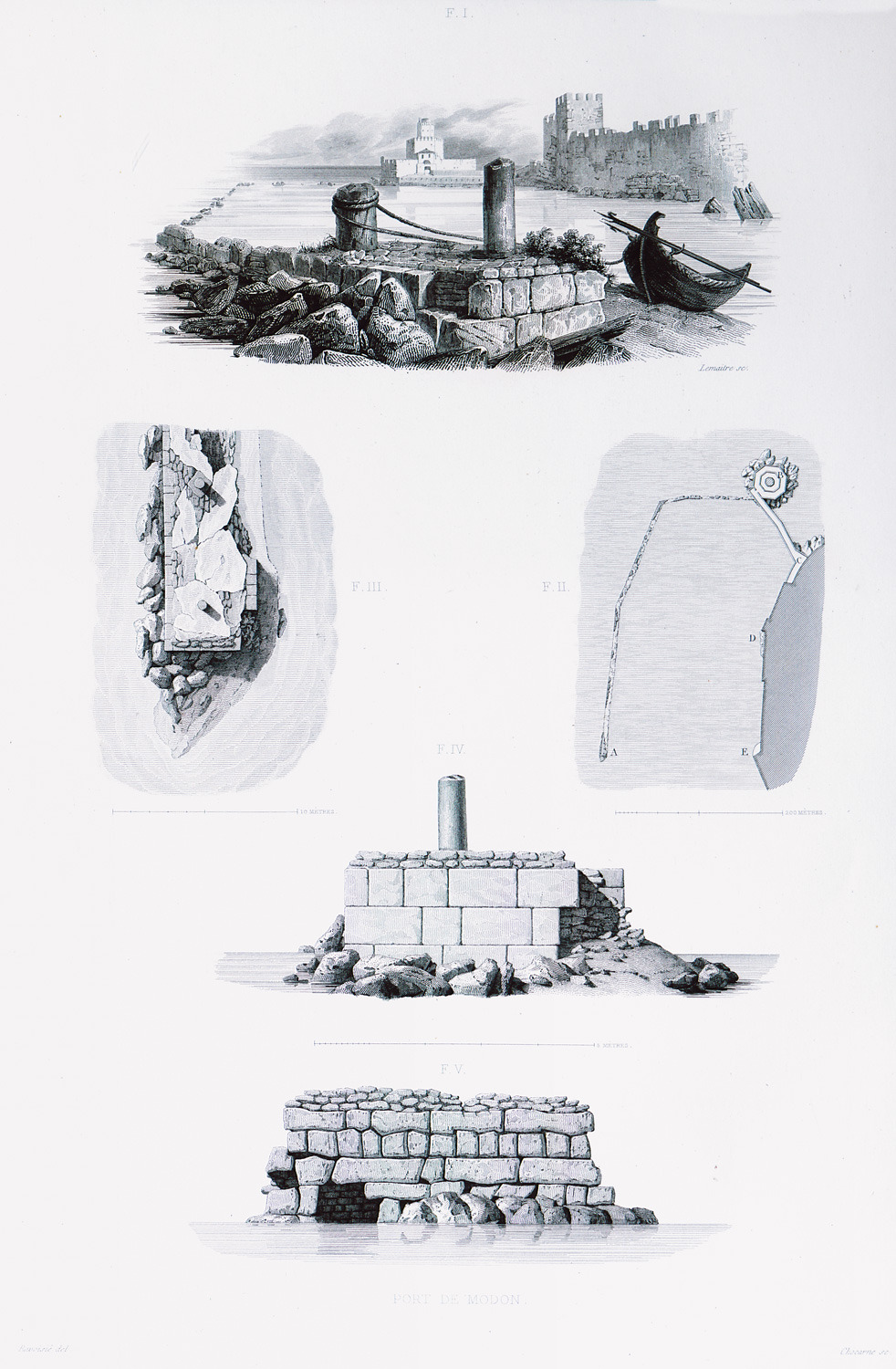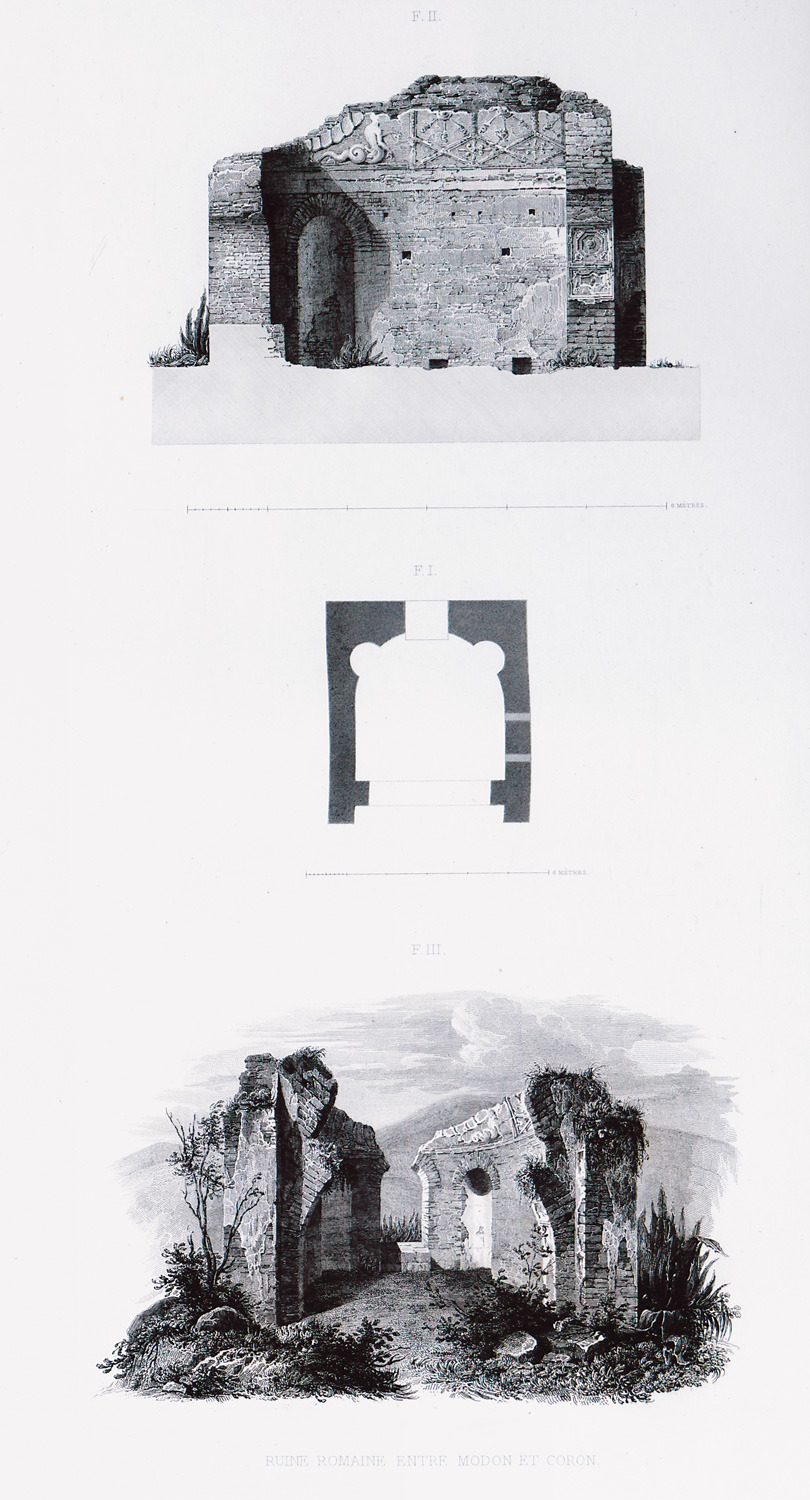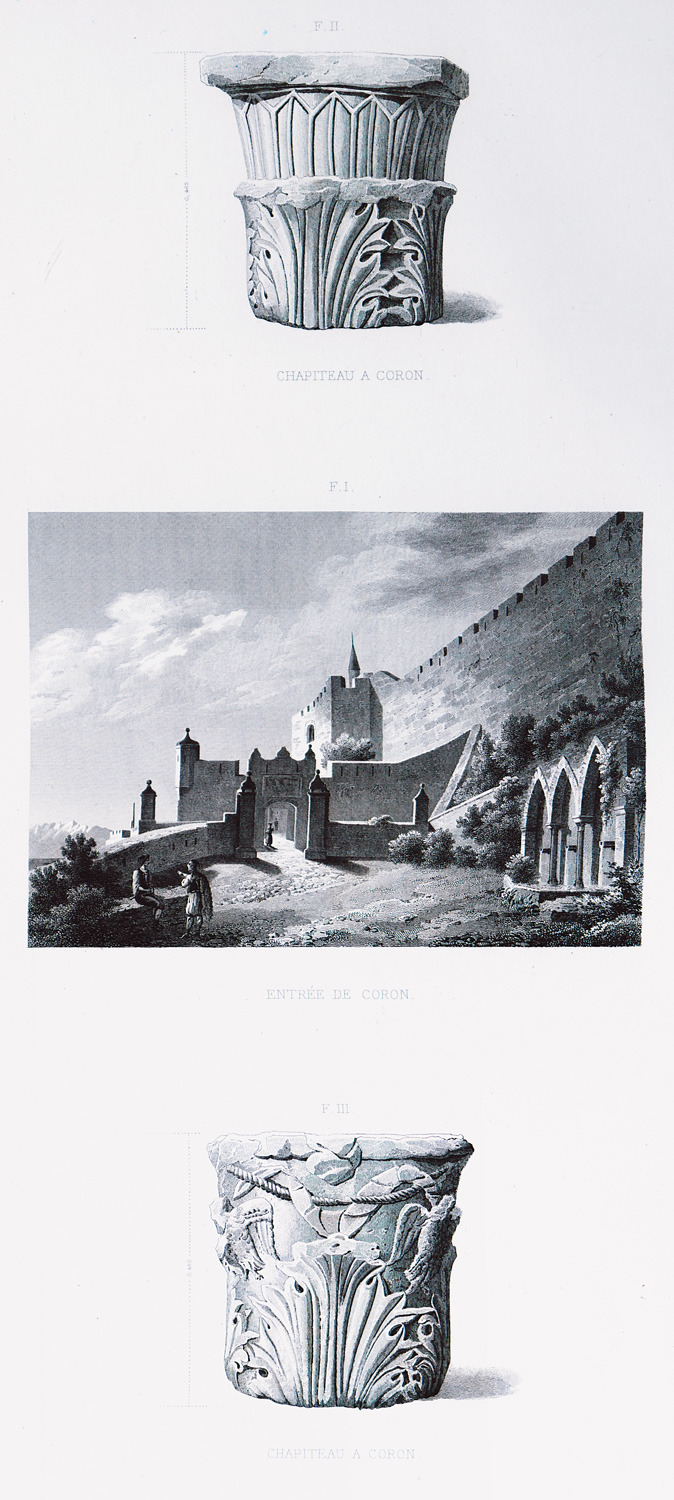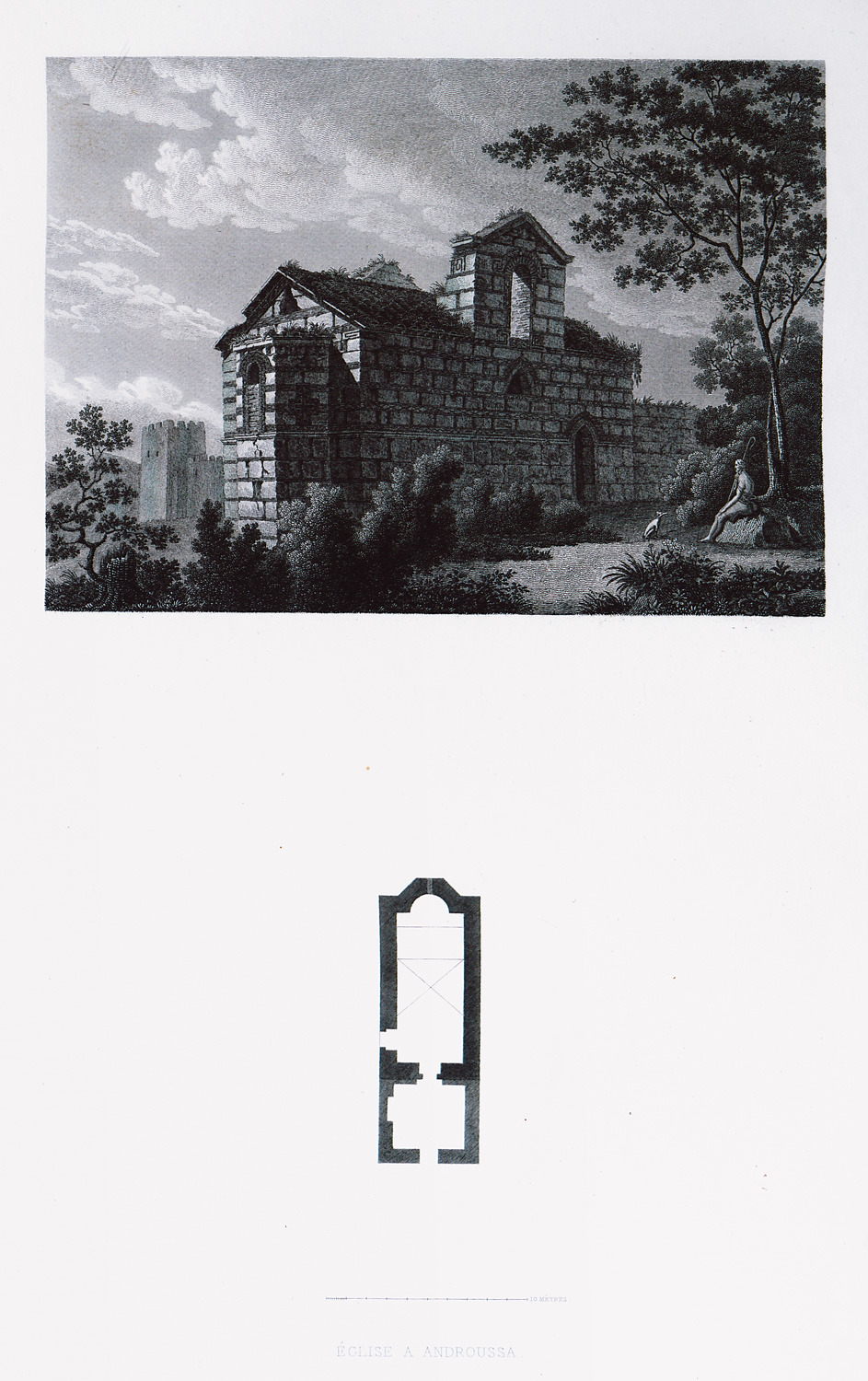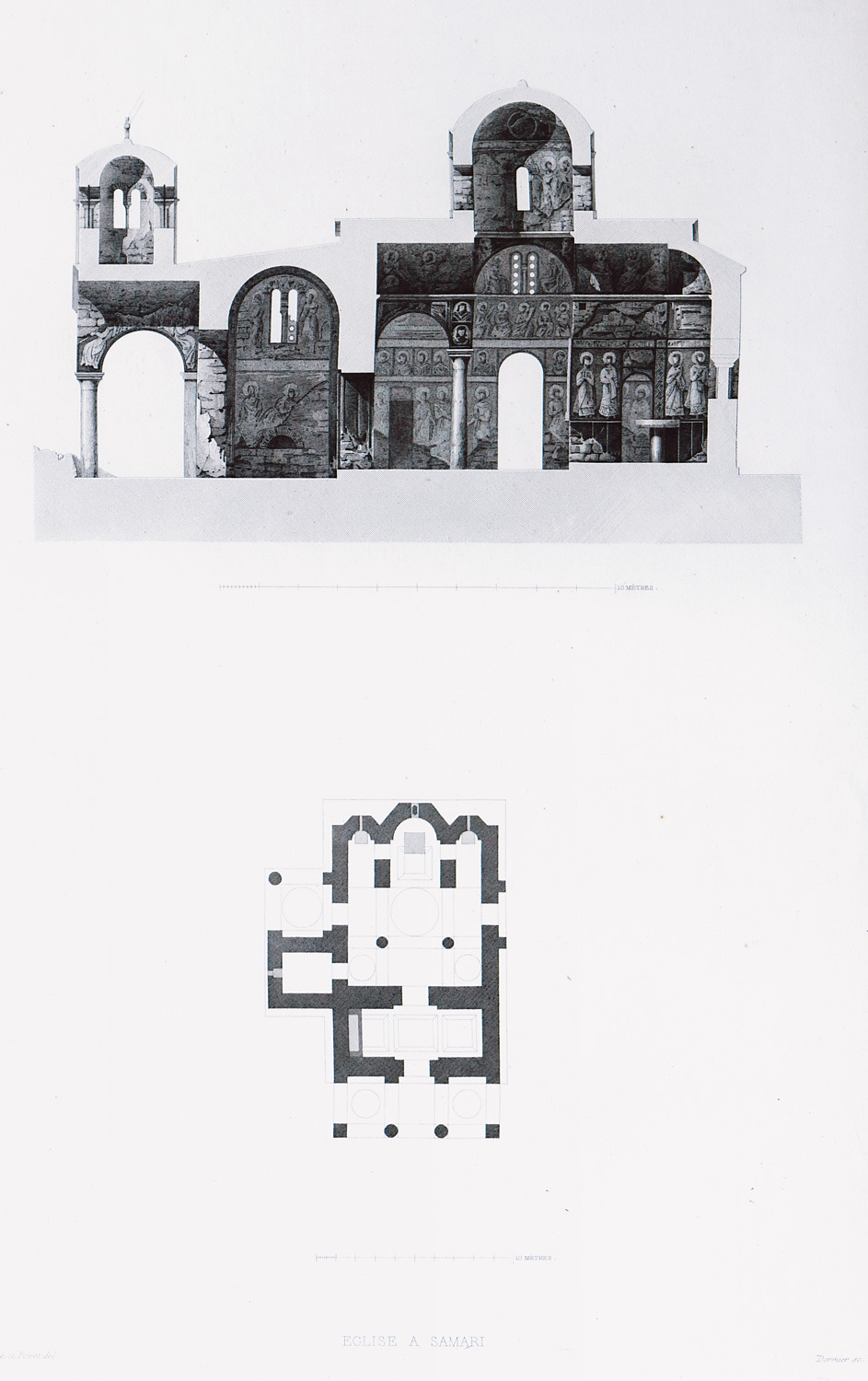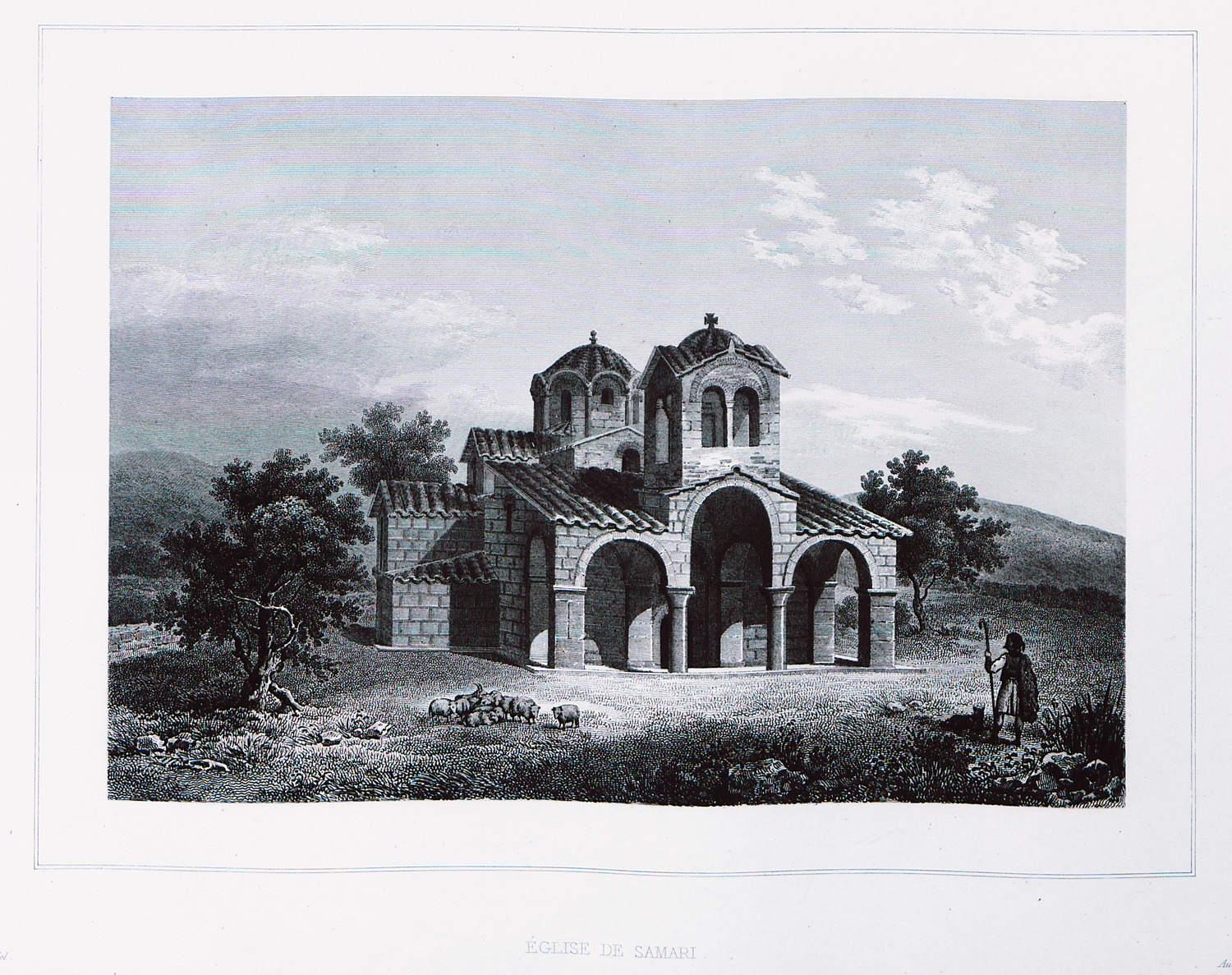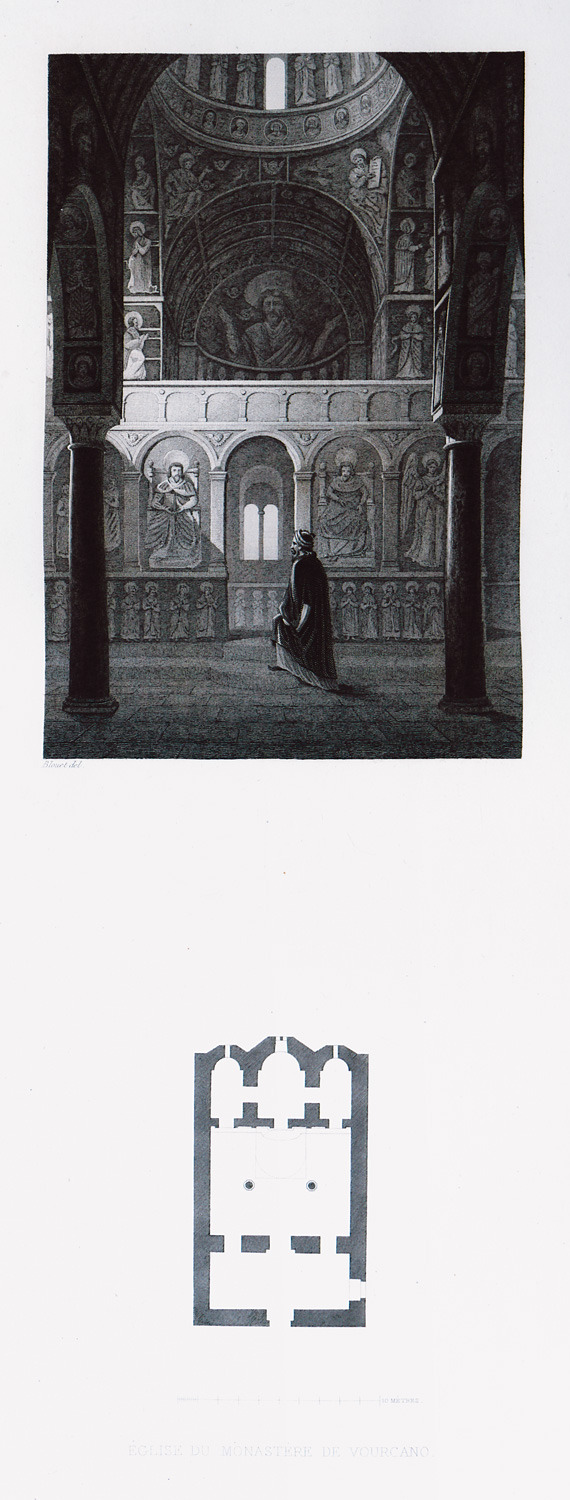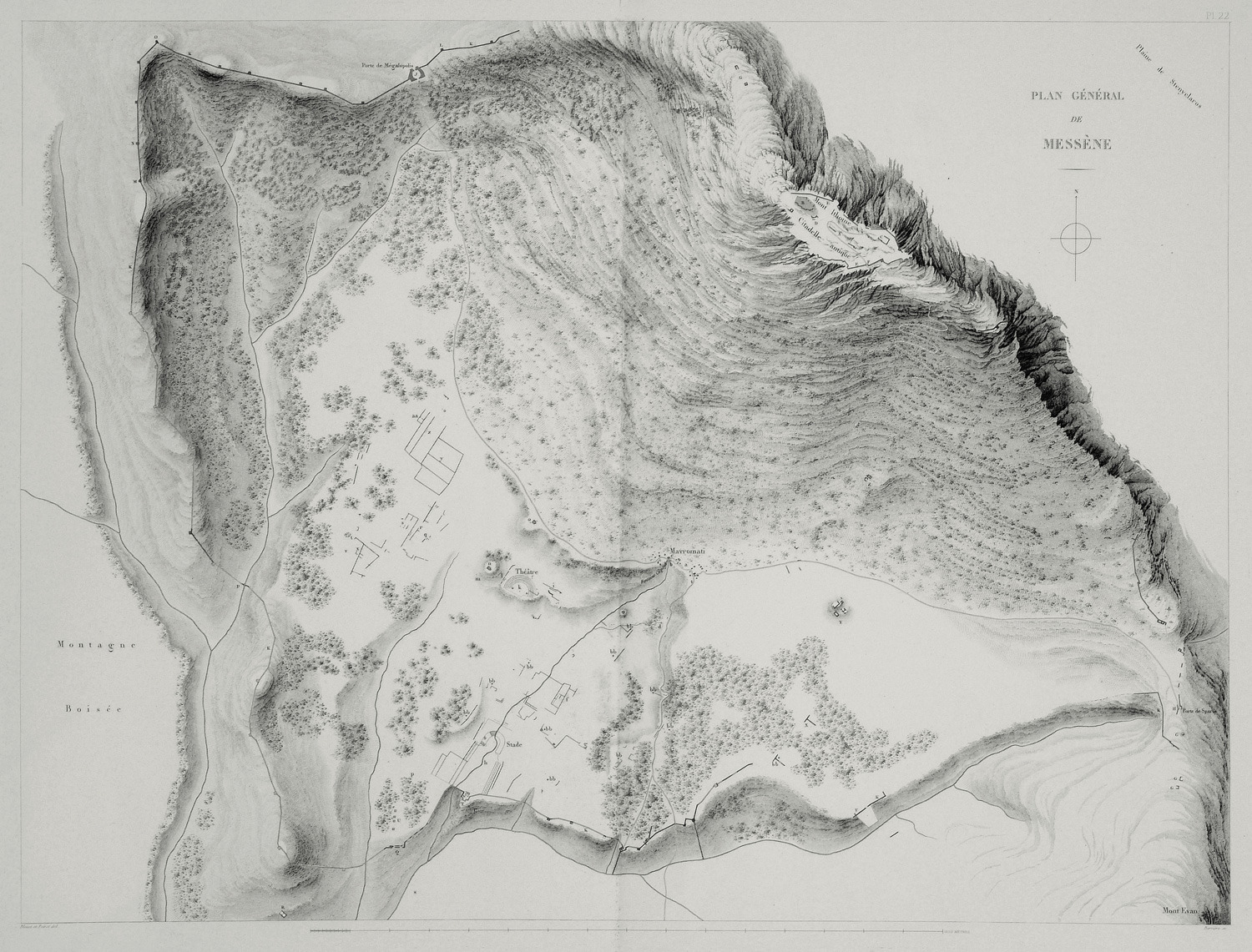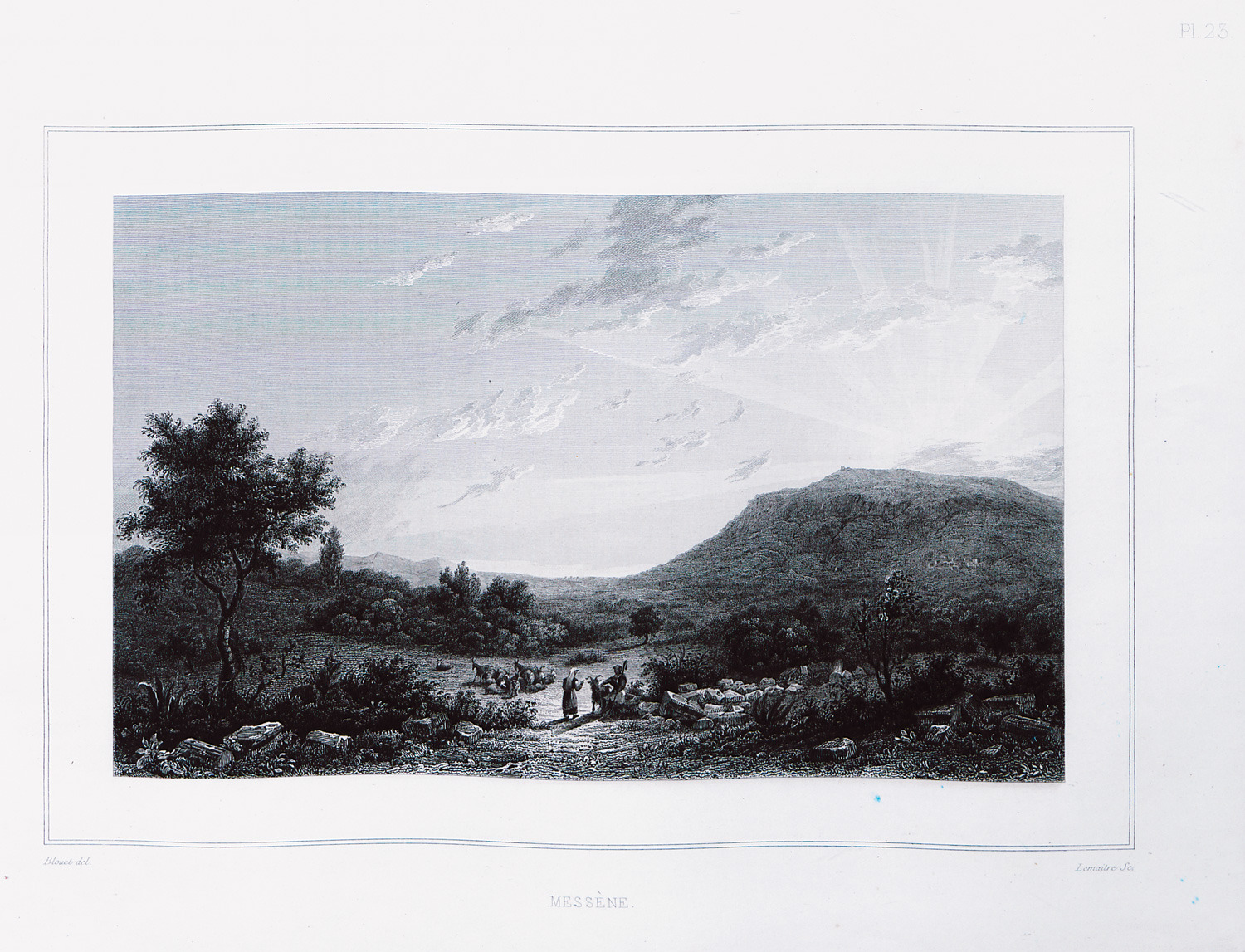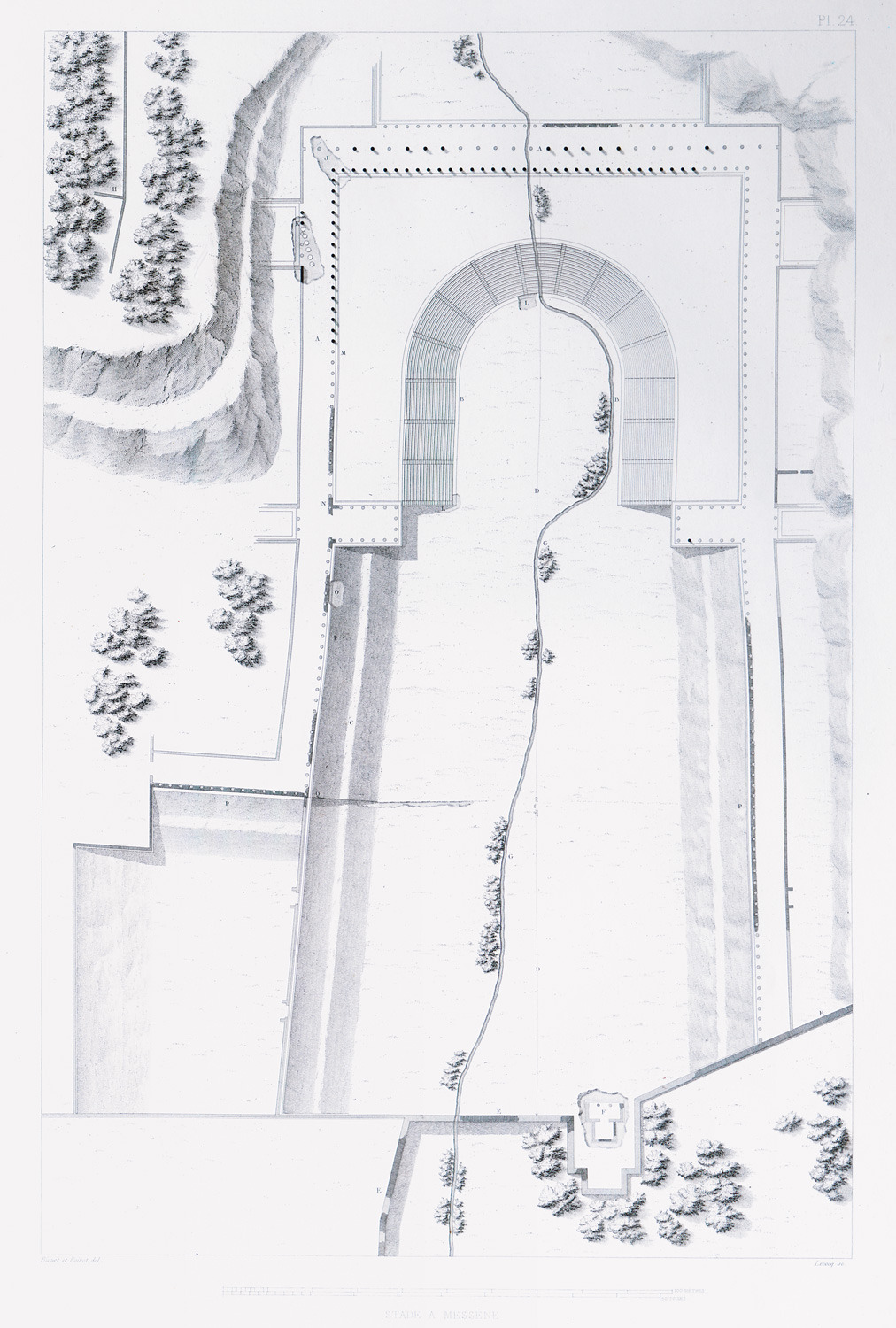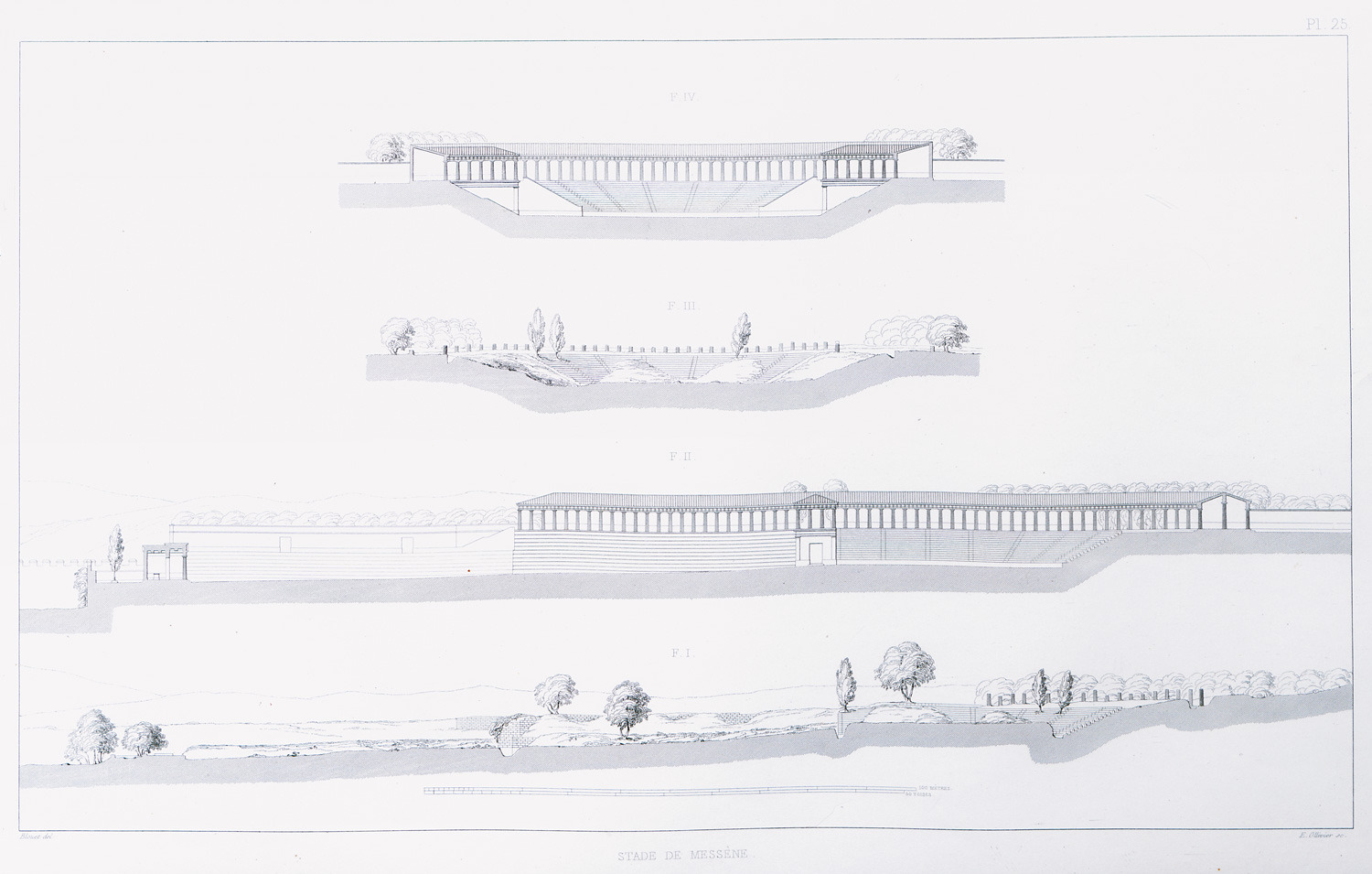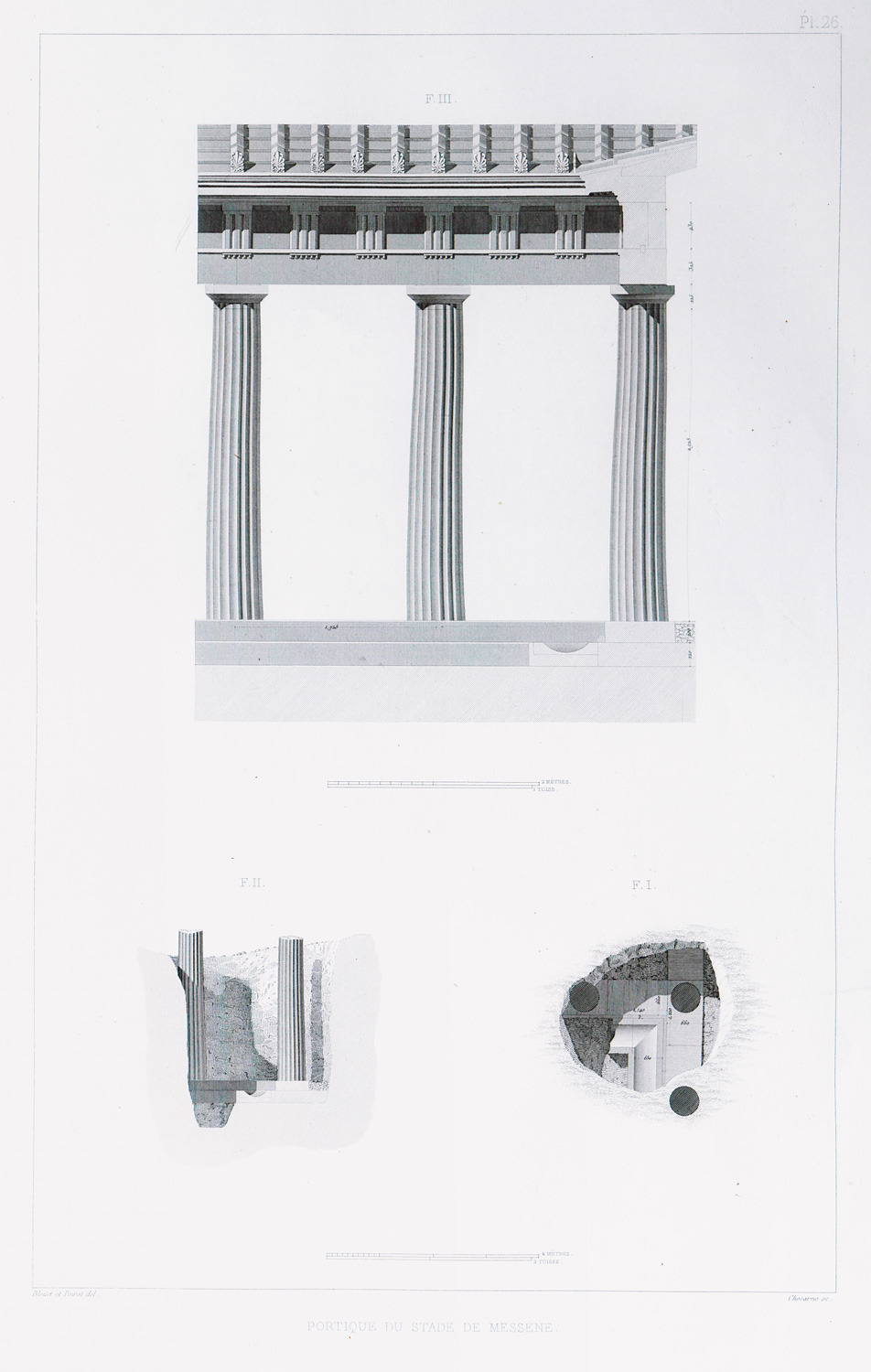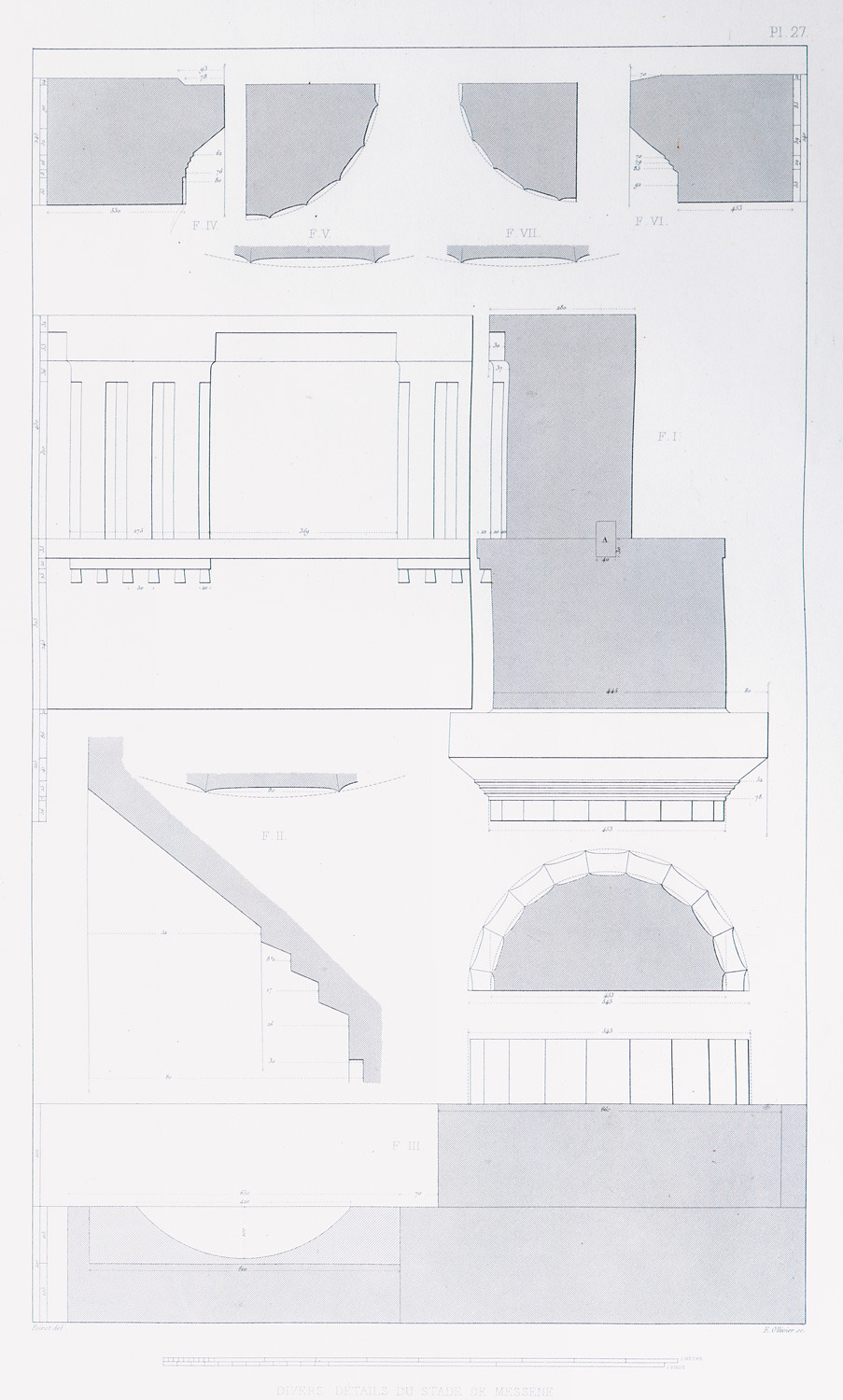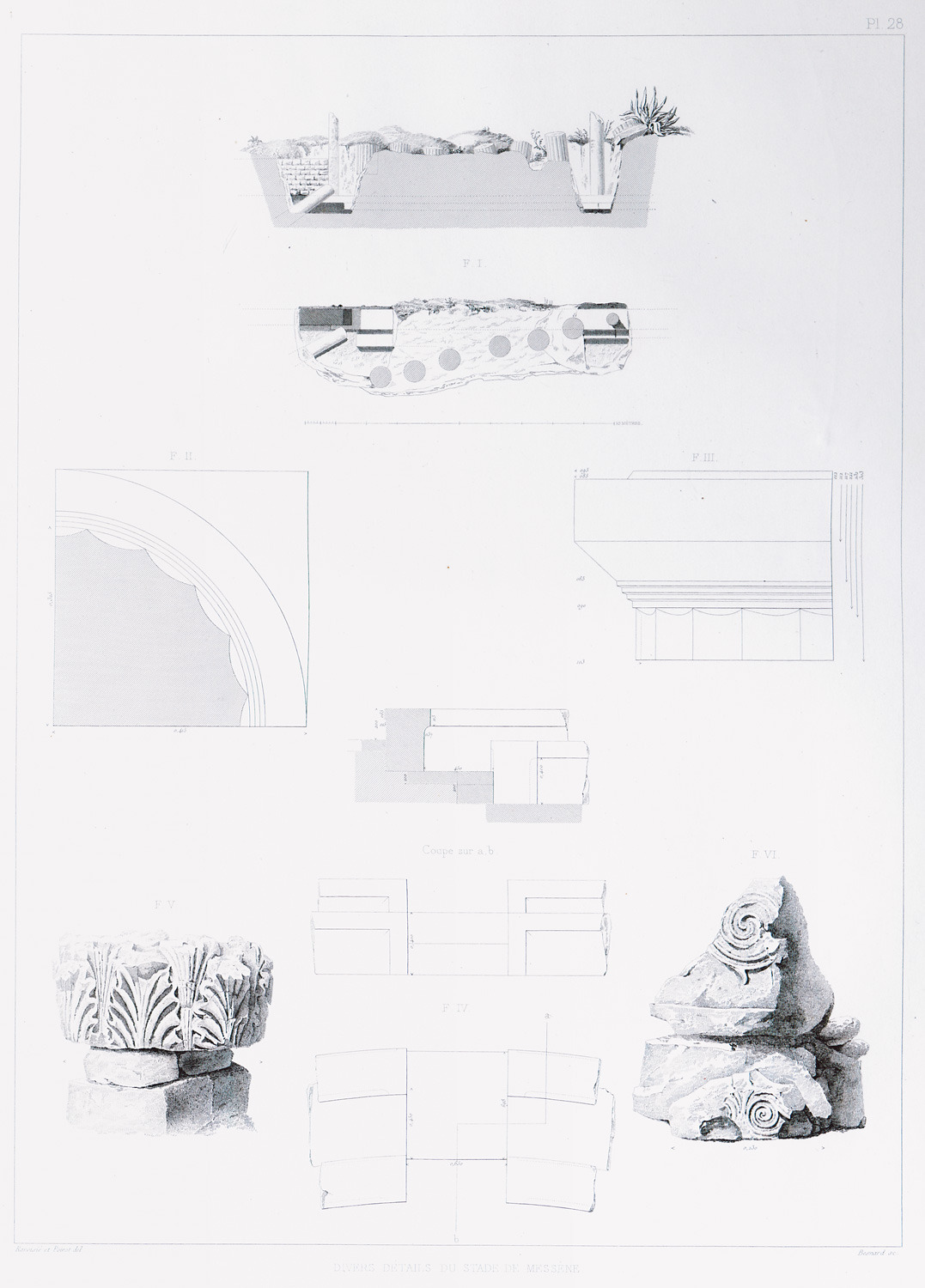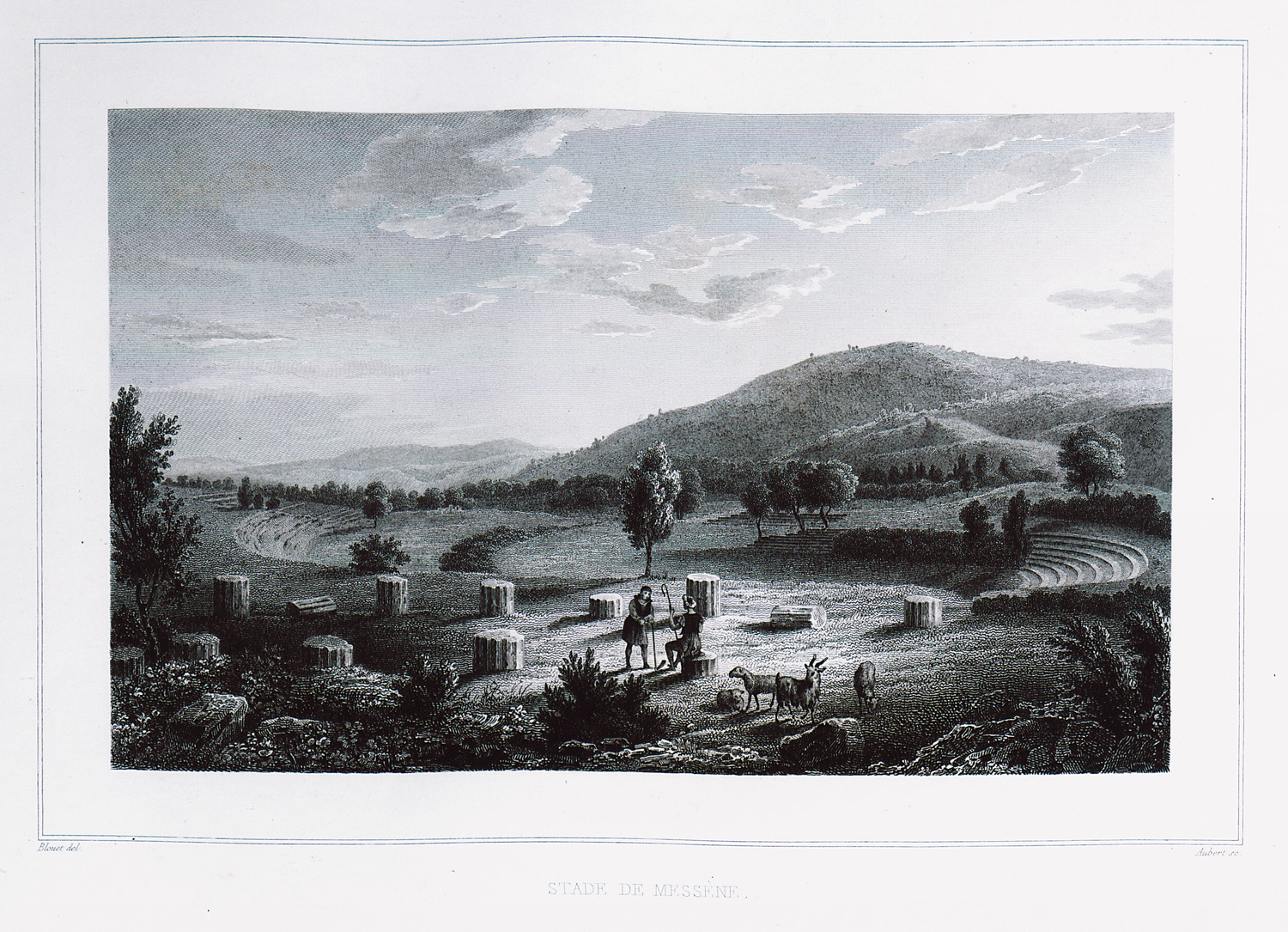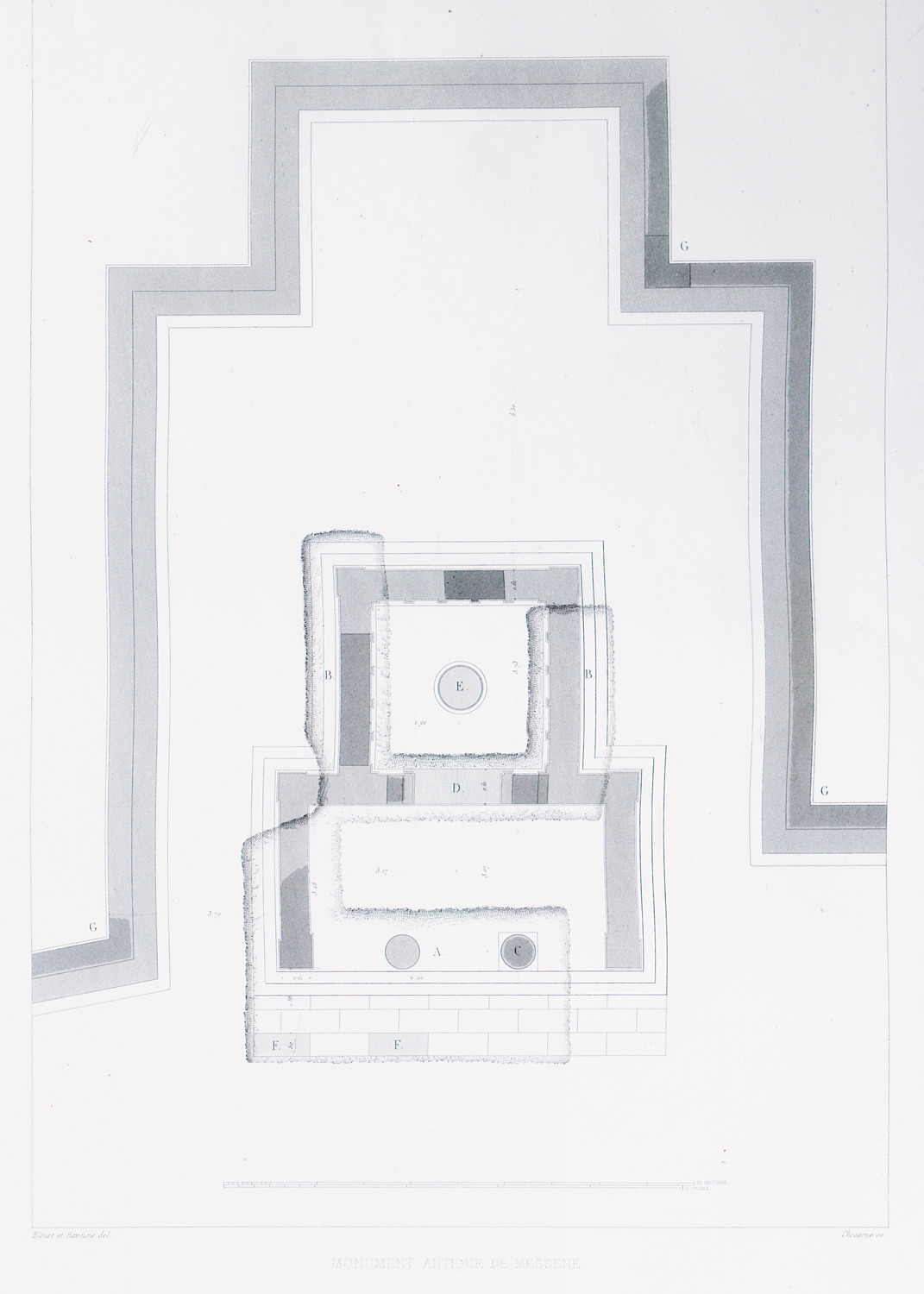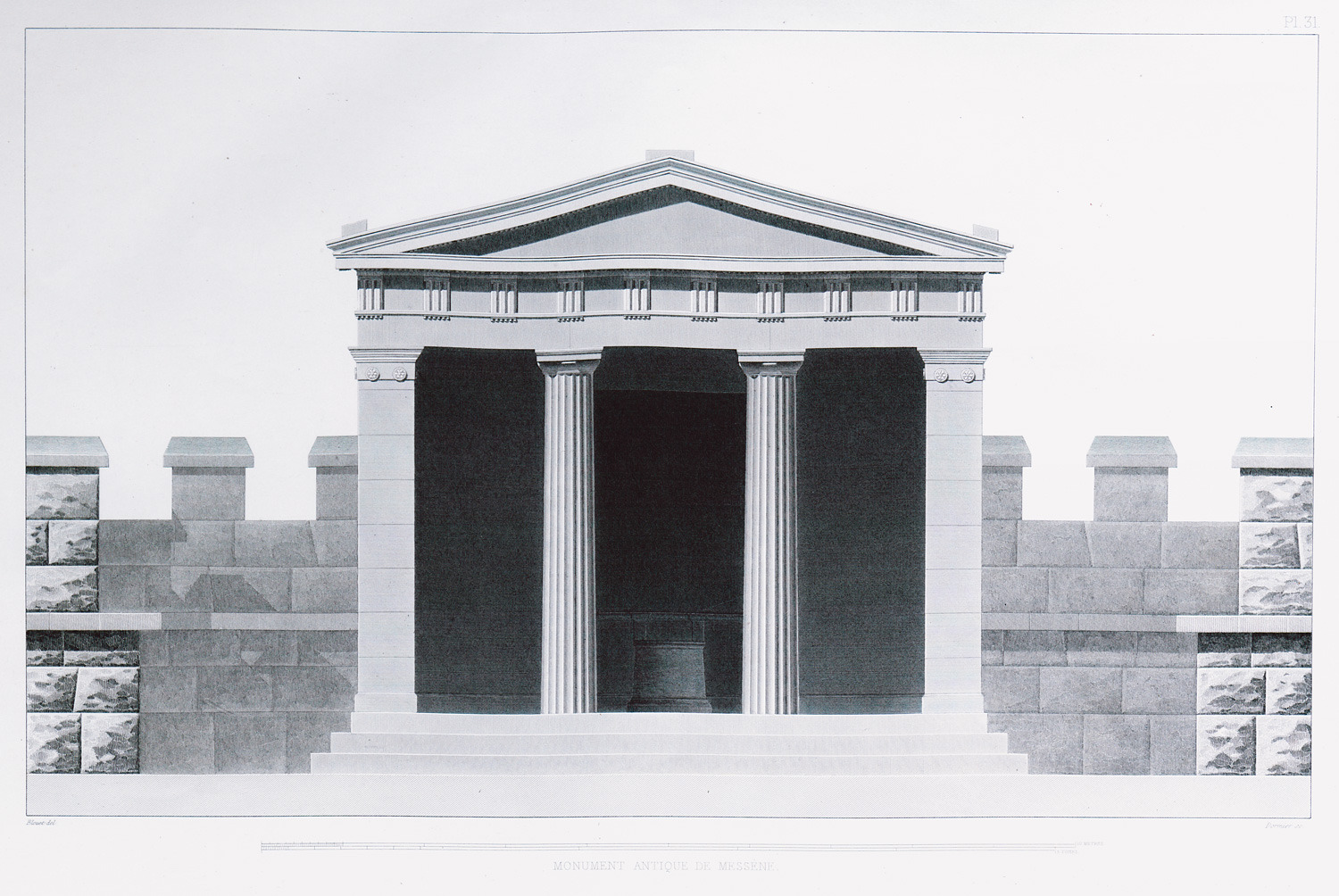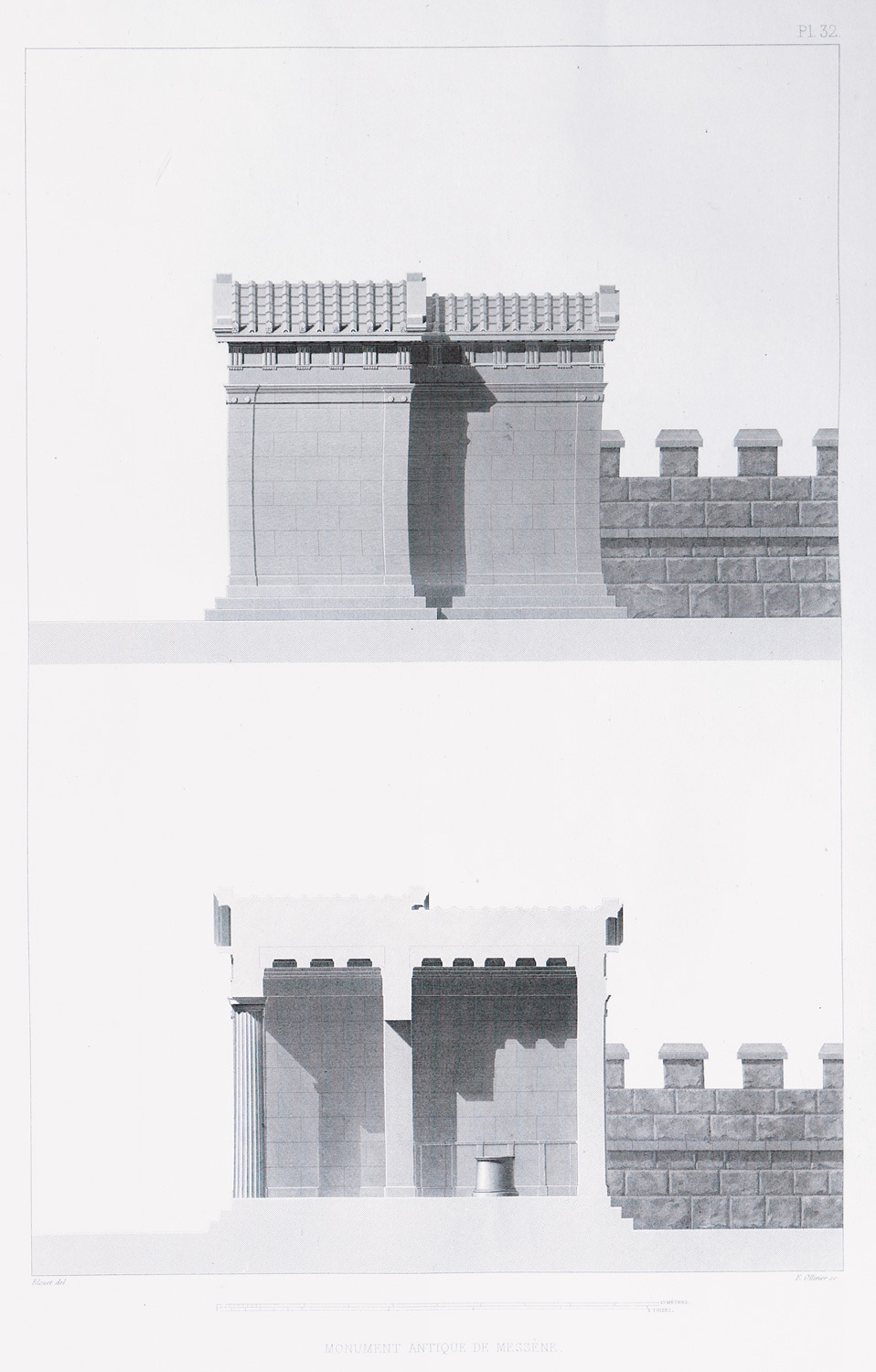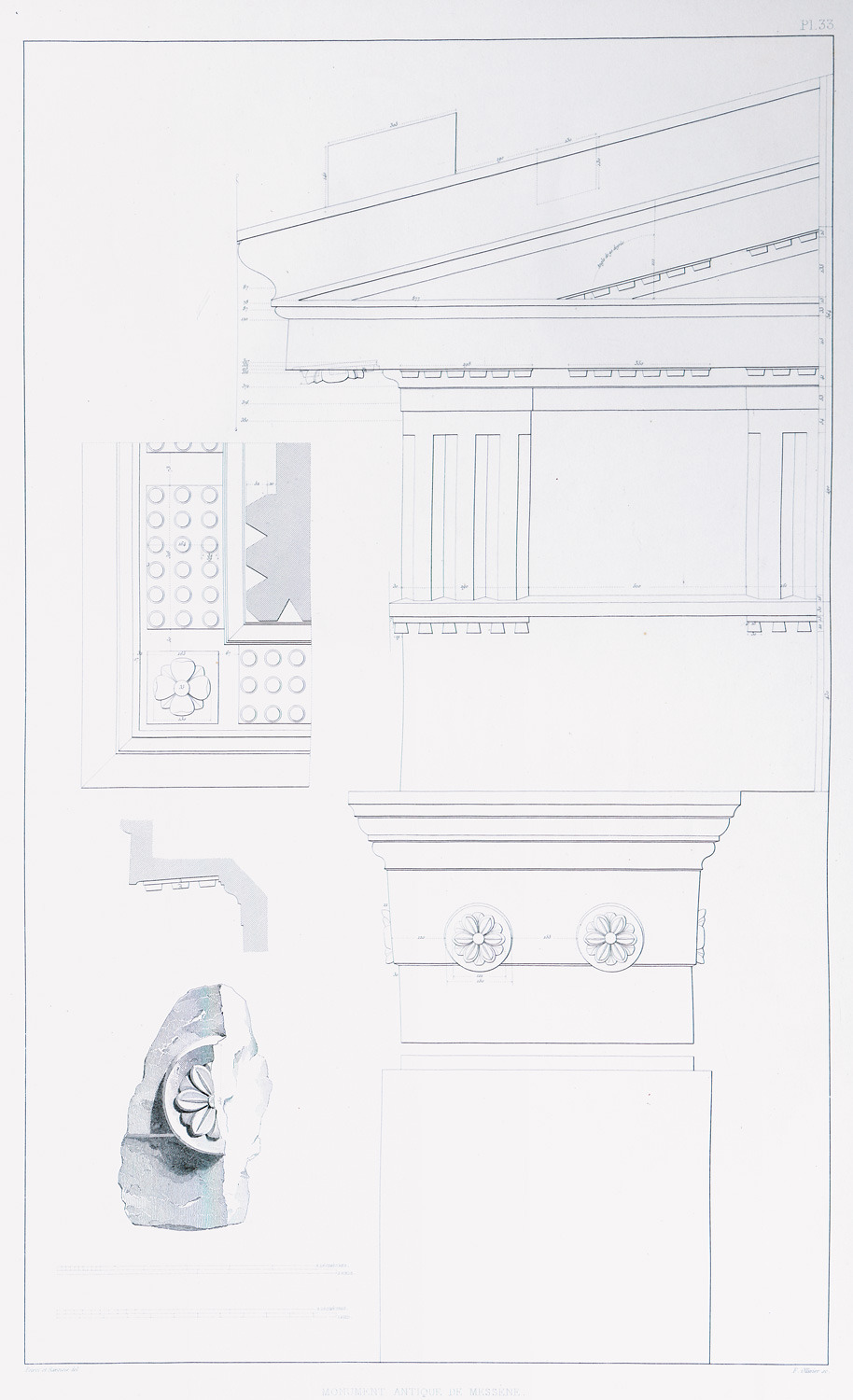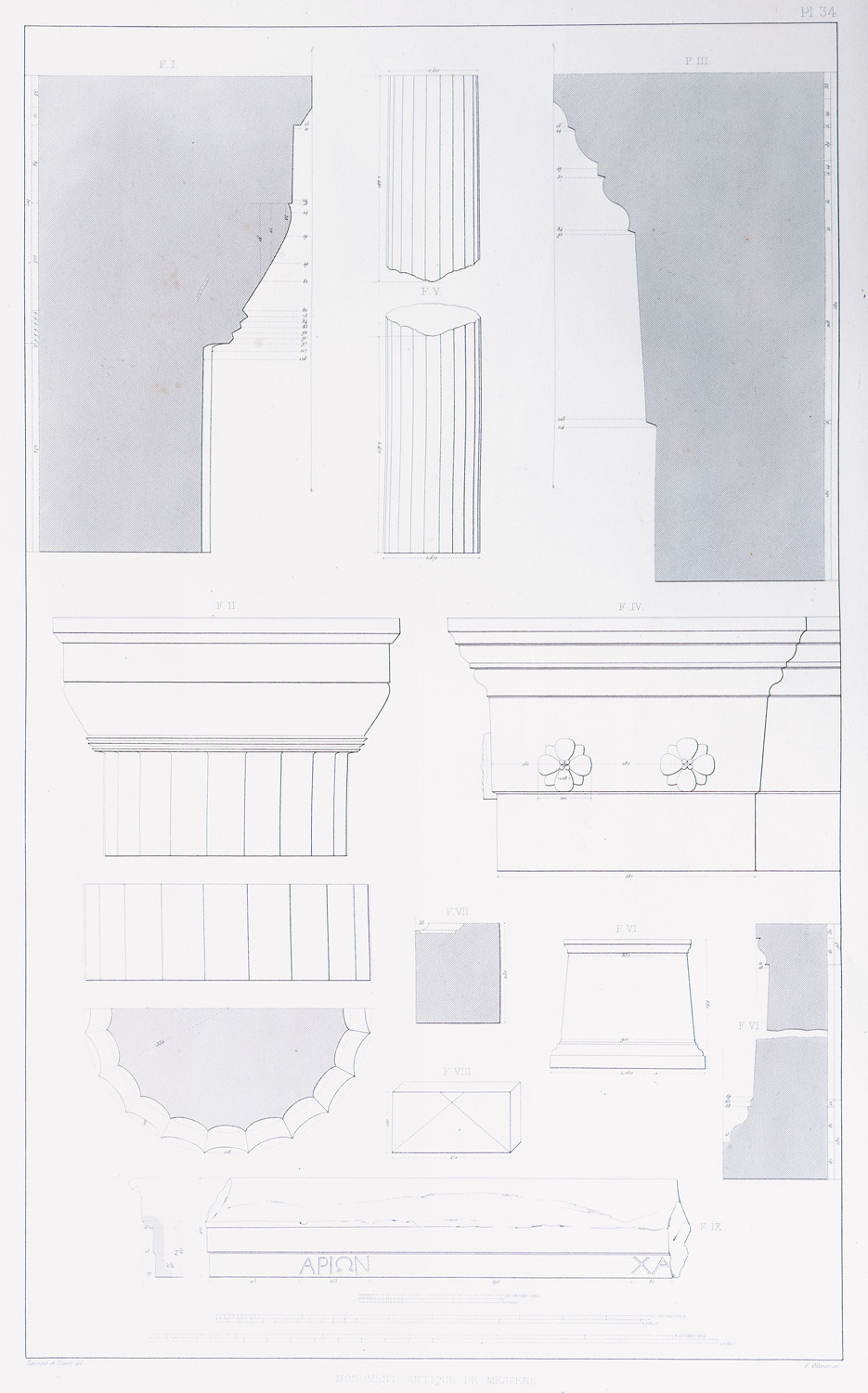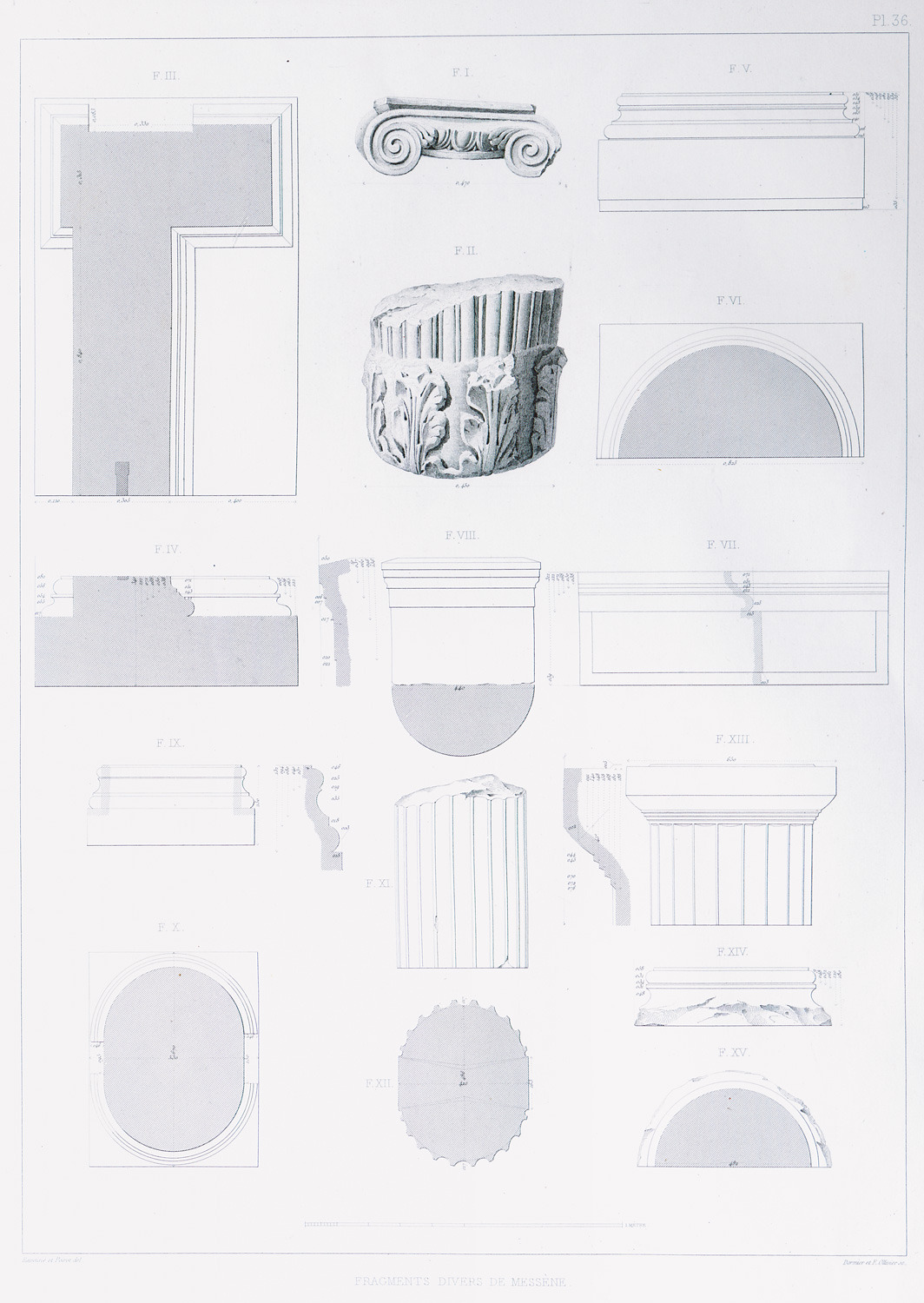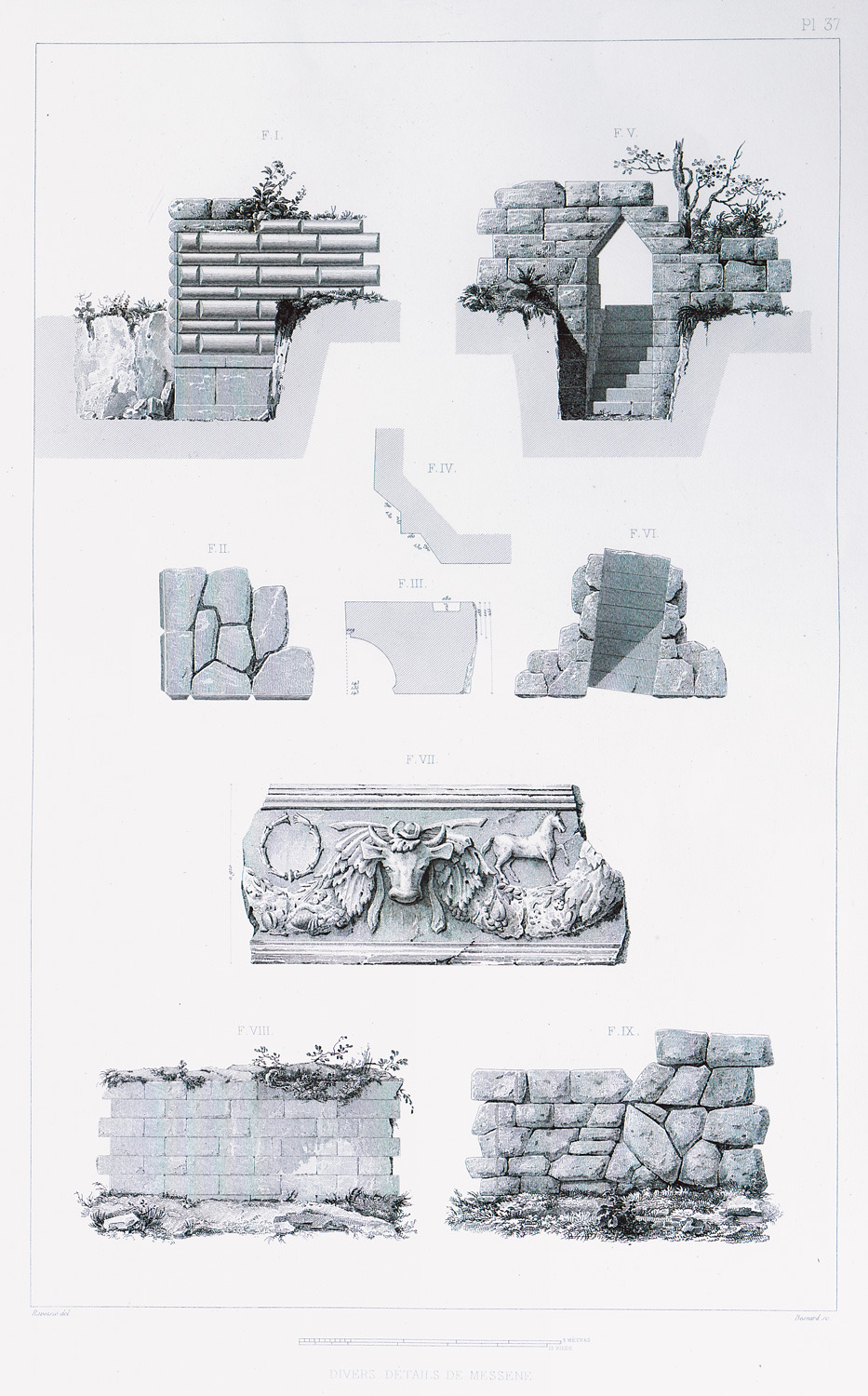Messenia (306 Subjects)
Top: View of Niokastro, the Ottoman fortress of Pylos. Bottom: View of Palaiokastro, the Venetian fortress of Pylos.
Top: Topographical map of the area of Palaiokastro, Pylos. Bottom: Plan of Palaiokastro, Venetian fortress of Pylos, which was built on the site of the Acropolis of ancient Pylos (Neleion).
Top: Cave of Nestor, located at Palaiokastro, to the side of Voidokoilia beach. Topographical map of the adjacent area. Bottom: Ruins of the walls of ancient Pylos, incorporated into the fortifications of the Venetian fortress of Palaiokastro.
1. Fountain close to Pylos. 2. Plan of church. 3. Stone bridge at Metaxada, close to Pylos.
Section, plan and view of the unidentified "Church of Osphino", on the route from Pylos to Methoni.
1. The Gate of Xira at the castle of Methoni. The granite column known as column of Morosini at the castle of Methoni.
Decorative reliefs of the Venetian era at the castle of Methoni.
1, 2. View and plan of the now-lost Catholic church of Saint John (San Giovanni Evangelista), converted into a mosque (Beyazit Veli mosque) during Ottoman rule. Today only the base of one minaret is preserved. 3. One of the two stone bridges at the environs of Methoni which were demolished in the mid-20th century.
1. View of the port of Methoni. In the background, the Bourtzi of Methoni, built in the first perid of Ottoman rule of the city. 2. Plan of the remains of the Venetian mole of Asprades. 3. View of the stone dock of Asprades and the column used as bollard, or dock post. 4. Details of the column and the stone mole of Asprades.
1. Plan of early Byzantine basilica at Loutsa, close to Foinikounta, Messenia. 2, 3. Roman ruins at Loutra, close to Foinikounta, Messenia.
Entrance to the Venetian castle of Koroni. 2. Ancient column capital from Koroni. 2. Roman column capital from Koroni.
View and plan of the church of Hagios Georgios at Androusa.
Section and plan of the Byzantine monastery of Panagia Samarina at Androusa.
View of the Byzantine monastery of Panagia Samarina at Androusa.
The altar of the church of the Dormition of the Virgin (Koimisis Theotokou) at Neo Voulkano Monastery. Plan of the church.
Topographic map of ancient Messene.
Landscape at the plain of Messene.
Panoramic view of the stadium and gymnasium of ancient Messene.
1, 3. Front and side view of the stadium and gymnasium of ancient Messene..2, 4. Reconstruction of the stadium and gymnasium of ancient Messene; front and side view.
Elevation of part of the Doric stoa at the stadium and gymnasium of ancient Messene. Architectural details of the structure.
Details of the corner of the entablature and of a column at the Doric stoa of the stadium of ancient Messene.
Architectural and decorative features of the stadium and gymnasium of ancient Messene: Elevation of the Doric stoa columns behind the seats. Ceiling plan of the column echinus. Corner column capital. Section and plan of the seats. Decorative features.
View of the stadium and gymnasium of ancient Messene.
Plan of the Heroon at ancient Messene.
Elevation of the Heroon at the stadium of ancient Messene (reconstruction).
Side elevation and section of the Heroon at the stadium of ancient Messene (reconstruction).
Architectural and decorative features of the Heroon at the stadium of ancient Messene: The corner of the entablature (pediment, architrave). Ceiling plan and section of the guttae. Lintel of the antae. Fragment of decorative element adorning the lintel.
Architectural features of the Heroon at the stadium of ancient Messene. 1. Section of column and column capital. 2. Reconstruction of crepidoma and column capital, ceiling plan of column. 3. Section of lintel. 4, 5. Reconstruction of anta base and lintel. 6. Section of anta base and lintel 7. Section of the stylobate at the base of the anta. 8. Slab from the base of the anta. 9. Stone inscribed with names, from the monument's façade.
Reconstruction, plans, sections and architectural features of fragments of Greek and Roman columns at ancient Messene.
Architectural and decorative features of monuments of ancient Messene.


